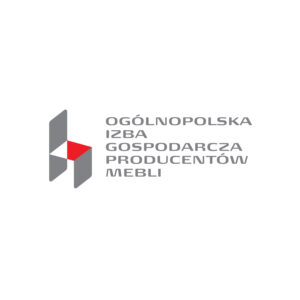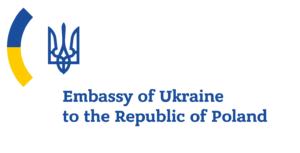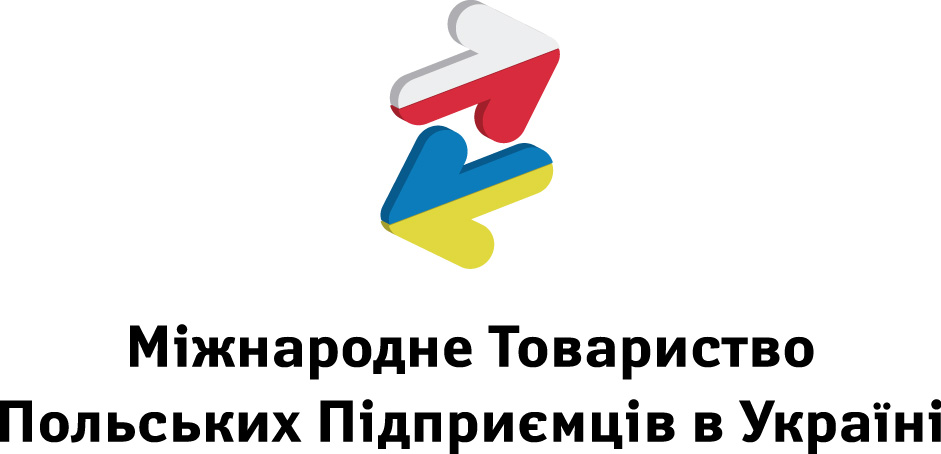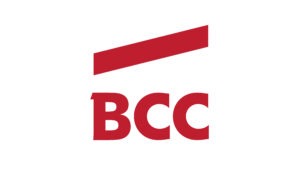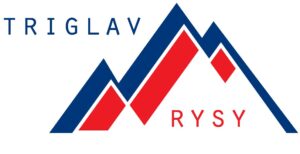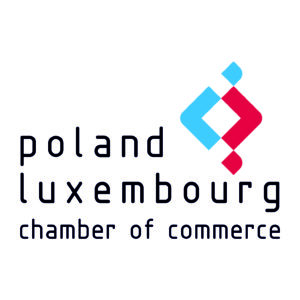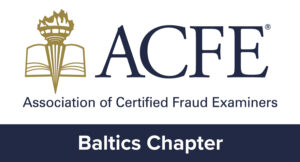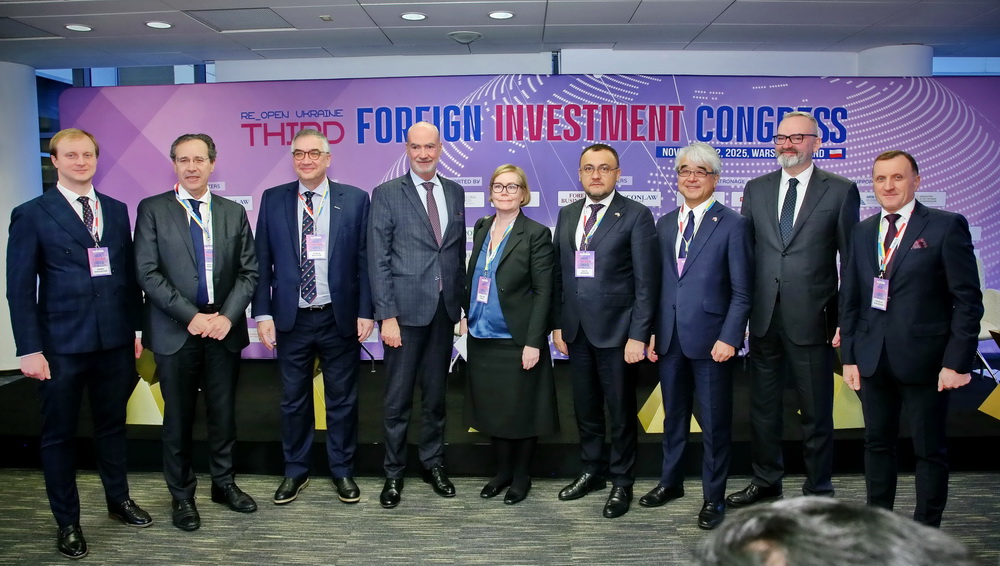
On 12 November 2025, the Third Foreign Investment Congress was held in Warsaw — a platform that brought together international and local businesses, financial institutions, investors, government representatives, and diplomatic missions with the goal of supporting Ukraine’s reconstruction. The event gathered 120 participants from 21 countries, highlighting the strong international interest in rebuilding and developing the Ukrainian economy.
The Congress program featured six panel discussions devoted to financing instruments, investment opportunities, international partnerships, and the private sector’s role in the country’s recovery. A special event of the Congress was an open interview with Kristina Mikulova, PhD, Head of the Regional Hub for Eastern Europe, European Investment Bank (EIB), who shared EIB’s vision for supporting Ukraine and attracting investments.
The event was held under the patronage of the Embassy of Ukraine to the Republic of Poland and PFR TFI, with the support of UkraineInvest and NRW.Global Business.
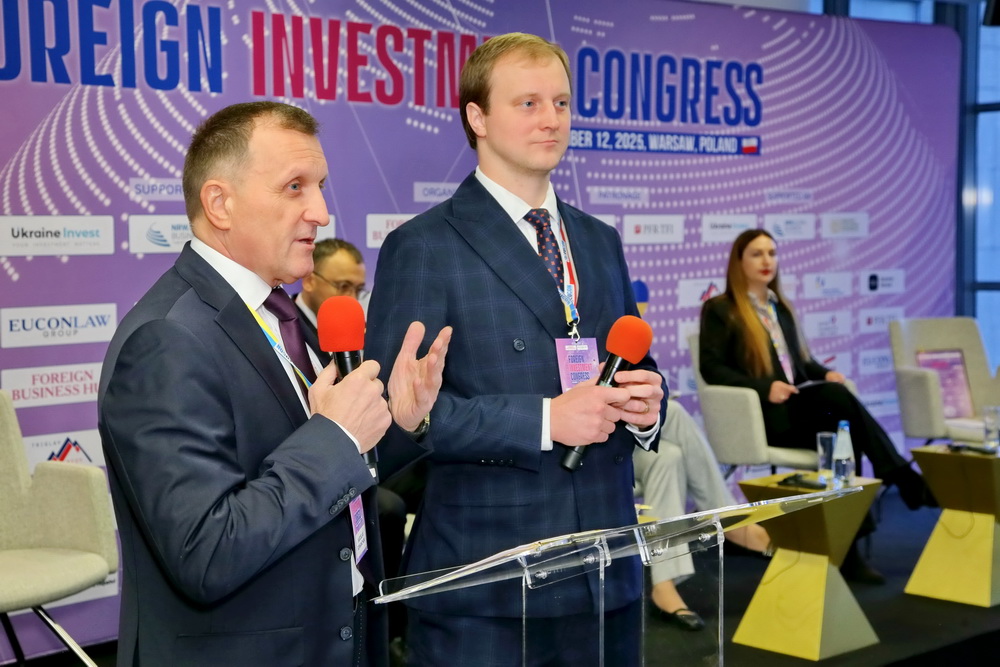
Opening the event, Yaroslav Romanchuk, Co-Chairman of the Organizing Committee and Managing Partner, EUCONLAW Group, emphasized that the purpose of the Congress is to unite global capital and key stakeholders to facilitate Ukraine’s recovery, modernization, and innovative development. He also noted that the event aims to support regional and veteran-led businesses, strengthen community capacities, and preserve human capital.
At the same time, Andrii Romanchuk, Co-Chairman of the Organizing Committee and Senior Partner, EUCONLAW Group, stressed that among the main goals of the Congress is creating conditions for safe and efficient implementation of investment projects, ensuring access to verified project pipelines, establishing direct contacts with government and local communities, and supporting veteran entrepreneurship.
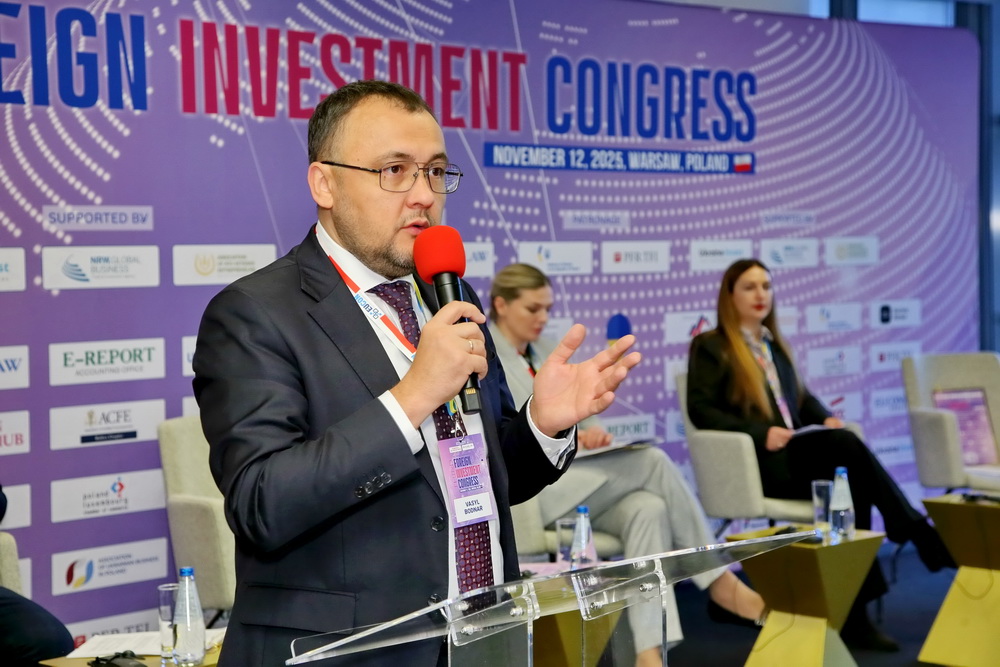
The Congress’s distinguished guest, H.E. Vasyl Bodnar, Ambassador Extraordinary and Plenipotentiary of Ukraine to the Republic of Poland, in his welcome remarks called for shifting from appeals for aid to presenting concrete investment projects essential for Ukraine’s recovery.
The Ambassador emphasized the role of Ukrainian entrepreneurs in Poland and the importance of human capital for Ukraine’s future reconstruction. He highlighted significant Ukrainian achievements in the IT, defense, and agricultural sectors, stressing the need to show investors real opportunities for profit and business growth.
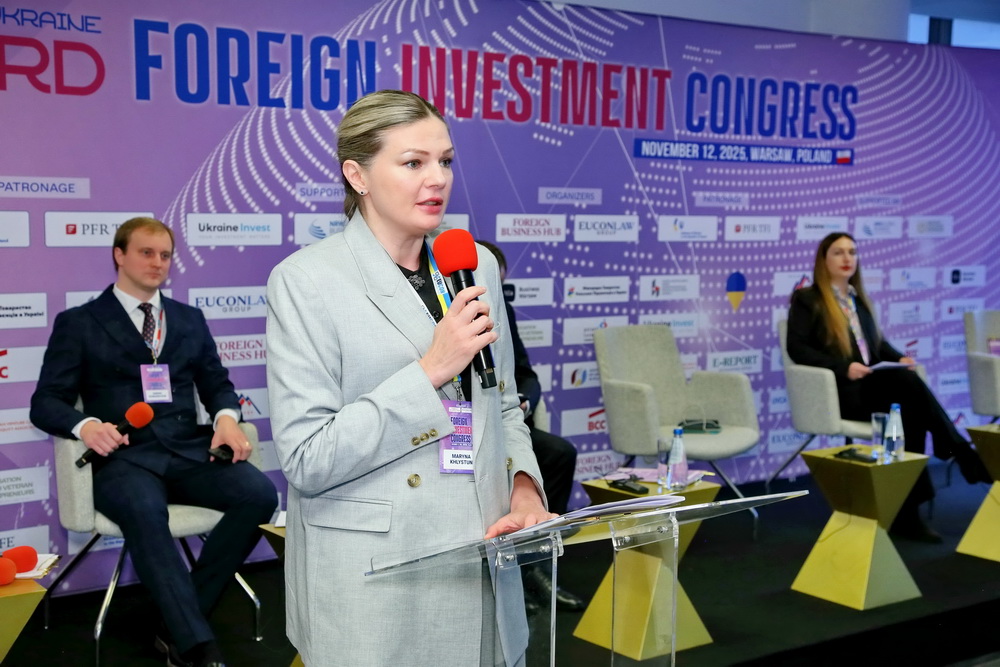
Maryna Khlystun, Executive Director of UkraineInvest – The State Institution “Investment Promotion Office”, underlined that the private sector must become the main driver of Ukraine’s recovery, while a favorable business environment, transparent investment climate, and effective risk-management mechanisms are key to attracting international capital. She highlighted Ukraine’s readiness for reforms, cooperation with international partners, and openness to effective investor dialogue aimed at sustainable economic growth and EU integration. She also mentioned the “single-window platform” for investors, which provides access to projects and financial instruments.
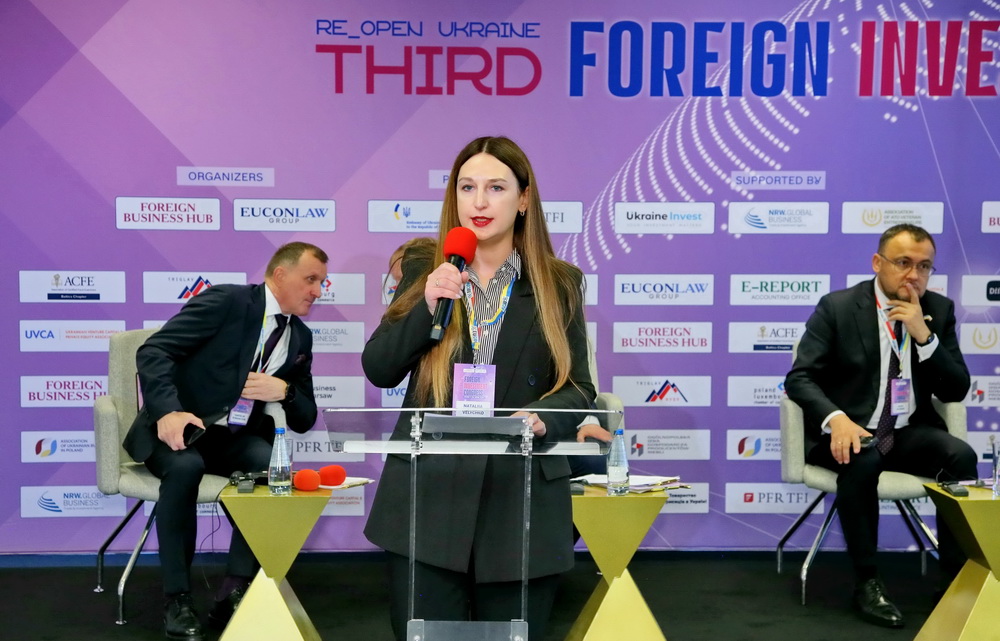
Dr. Nataliia Velychko, Project Manager Ukraine, NRW.Global Business GmbH – Trade & Investment Agency, welcomed participants and emphasized the importance of partnership for Ukraine’s reconstruction.
She noted that Germany remains one of Ukraine’s largest partners, providing financial, humanitarian, and military assistance, while NRW Global Business actively supports economic and recovery initiatives. “In February 2023, a new regional partnership was launched with Dnipro region, and today there are 55 municipal partnerships between NRW and Ukraine,” she noted.
She also outlined key cooperation areas — aerospace, defense and dual-use technologies, digital and IT sectors — noting that over 300 NRW companies are working in Ukraine, and more than 100 Ukrainian companies are operating in the region, demonstrating growing bilateral economic ties.
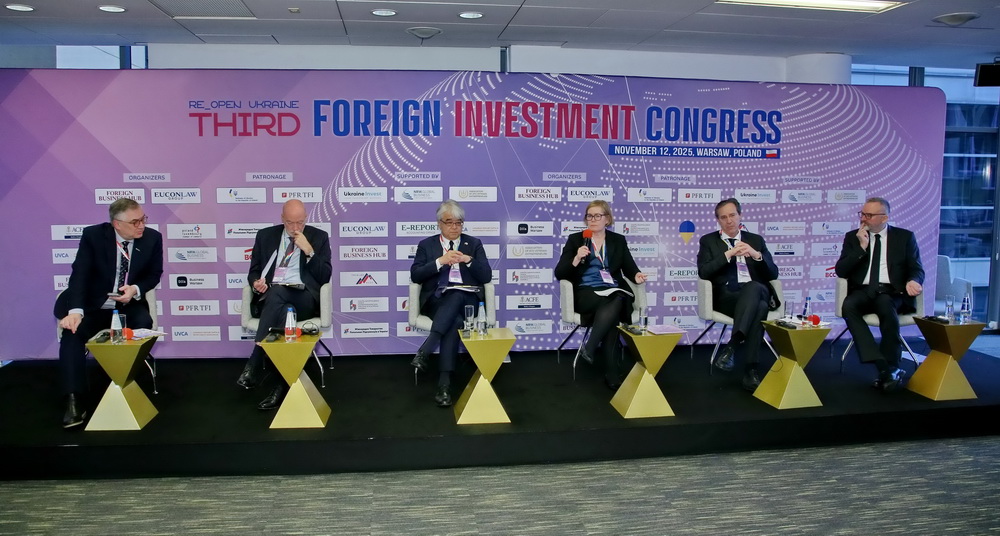
Ambassadors from France, Japan, Sweden, Germany, and Switzerland participated in the first panel discussion, “Diplomacy and Investment”. They shared how their governments, together with the private sector, are creating new trilateral cooperation formats between Poland, Ukraine, and partner countries to facilitate investment, accelerate reconstruction, and strengthen Europe’s long-term security.
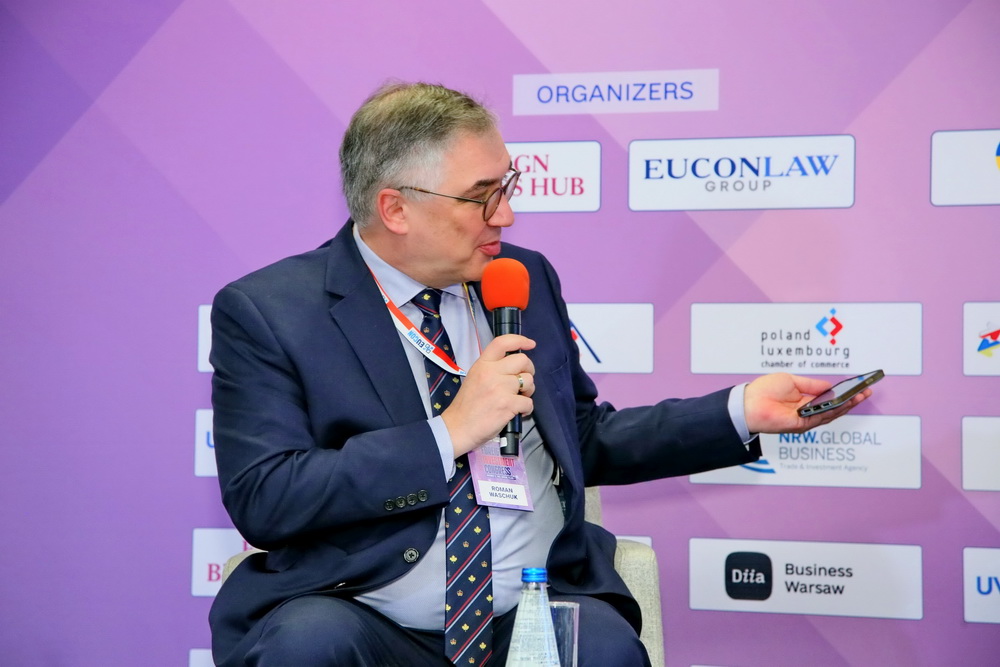
The panel was moderated by Roman Waschuk, Business Ombudsman of Ukraine, Ambassador of Canada to Ukraine (2014–2019). He noted that political will must work together with clear international value chains and effective instruments to meaningfully stimulate investment. He emphasized that the Poland–Ukraine–partner-country triangle is becoming a key model of reconstruction and cited an example of Ukrainian business resilience — a gas station in Kharkiv was rebuilt and reopened just 72 hours after a missile strike.

H.E. Etienne de Poncins, Ambassador Extraordinary and Plenipotentiary of French Republic to the Republic of Poland, emphasized France’s efforts to build strong cooperation formats since the beginning of Russia’s full-scale invasion. He noted that France is actively developing a trilateral format with Poland and Ukraine to strengthen political and economic coordination, where Poland plays a key logistical role.
He highlighted one of the key achievements — the signing of the Nancy Defense Cooperation Treaty between France and Poland, developed in less than 18 months, strengthening defense-industry cooperation and regional security, and creating a new institutional layer alongside NATO and the UN.
“France supports Ukraine’s European integration while emphasizing key requirements, including in the agricultural sector. Paris and Warsaw work closely to strengthen Ukraine’s European future,” he noted.
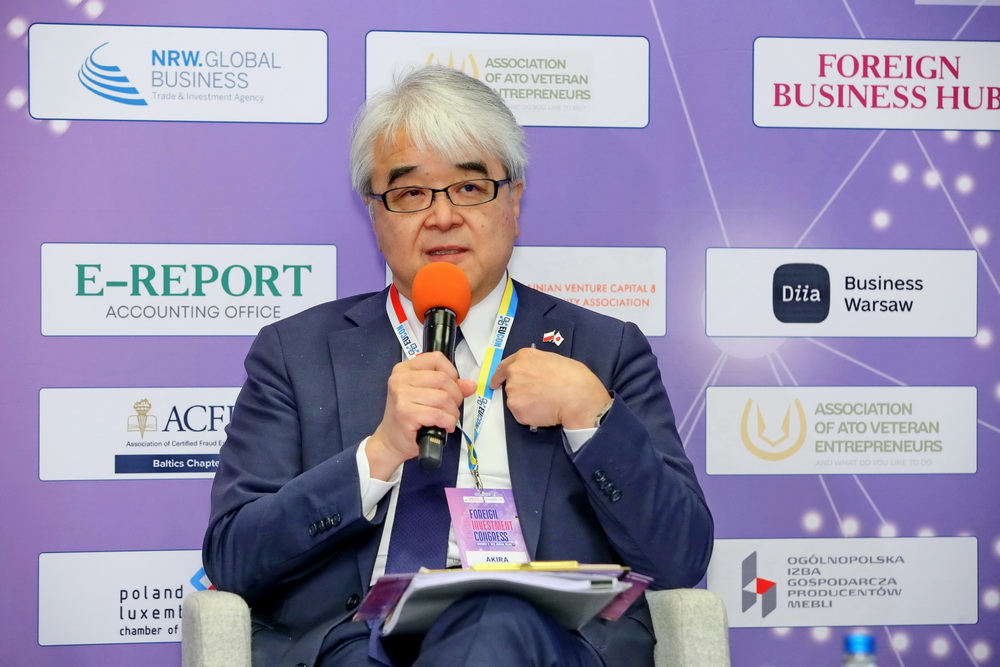
H.E. Akira Kono, Ambassador Extraordinary and Plenipotentiary of Japan to the Republic of Poland, stressed that Japan’s support for Ukraine remains unwavering, even after the formation of a new government.
He noted that Ukraine’s recovery is unique for two reasons: it begins during an ongoing war, and the private sector — not only official assistance — will play a decisive role. “To support early business projects, Japan has introduced new instruments such as feasibility studies financed by the Ministry of Economy, Trade and Industry,” said Ambassador Kono.
He emphasized Poland’s strategic role as a logistics and production hub for Ukraine’s recovery — 7 out of 9 selected projects integrate Poland as a production or technological partner.
.
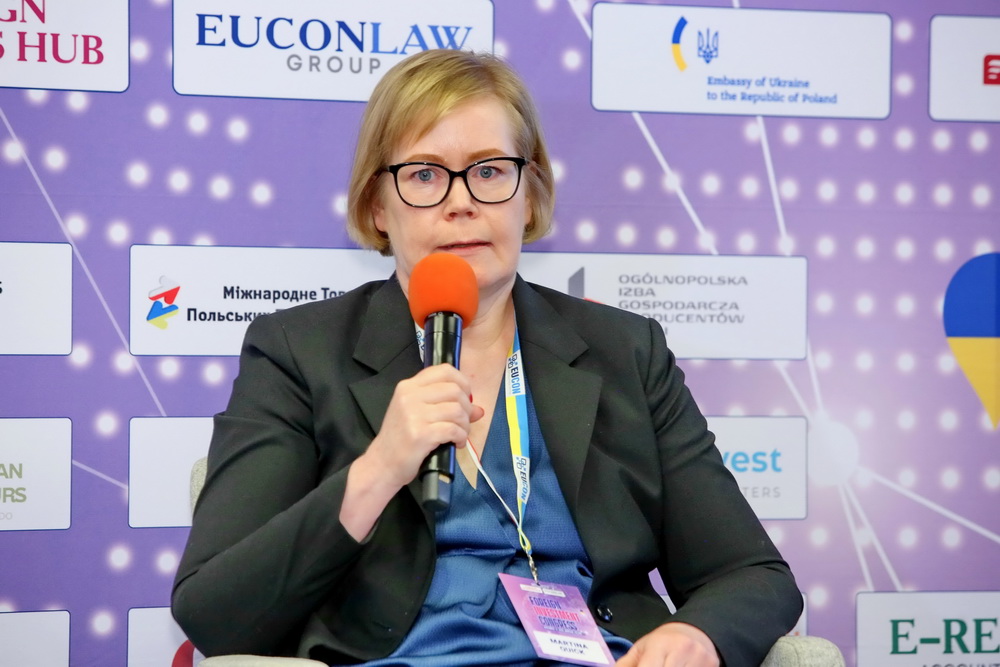
H.E. Martina Quick, Ambassador Extraordinary and Plenipotentiary of Sweden to the Republic of Poland, stated that supporting Ukraine remains a top priority for Sweden. She noted that Sweden’s military and civil assistance has reached €10 billion.
She emphasized the importance of the private sector for Ukraine’s reconstruction and that Sweden is adapting its tools — travel advisories and export-credit guarantees — to facilitate entry into the Ukrainian market.
Hundreds of Swedish companies operating in Poland are already exploring opportunities in Ukraine, she said, pointing to the Warsaw Group, a format at the Embassy, where Swedish companies share expertise with Polish partners and receive updates on government initiatives.
She also called for greater support for Ukrainian exports to Europe as essential for job creation, economic resilience, and EU integration.
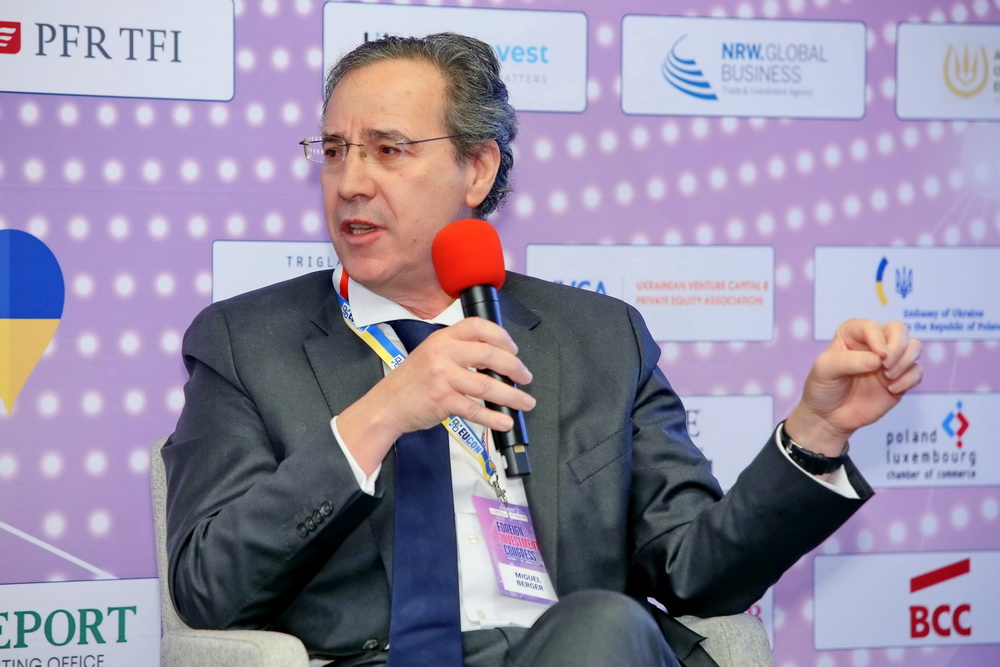
H.E. Miguel Berger, Ambassador Extraordinary and Plenipotentiary of the Federal Republic of Germany to the Republic of Poland, reported that bilateral trade between Ukraine and Germany reached €11.6 billion — a significant figure under wartime conditions. “Nearly 2,000 German companies operate in Ukraine, most of which have remained due to support from the German government and the Chamber of Commerce in Kyiv,” he noted.
He stressed that opening borders between Poland and Ukraine is critical for maintaining trade flows, as growing Ukrainian exports to the EU strengthen economic stability and integration.
“Germany has already provided €40 billion in military support and €36 billion in civil assistance, including recovery, energy, humanitarian, and financial programs. This assistance will continue as long as needed,” he stated.
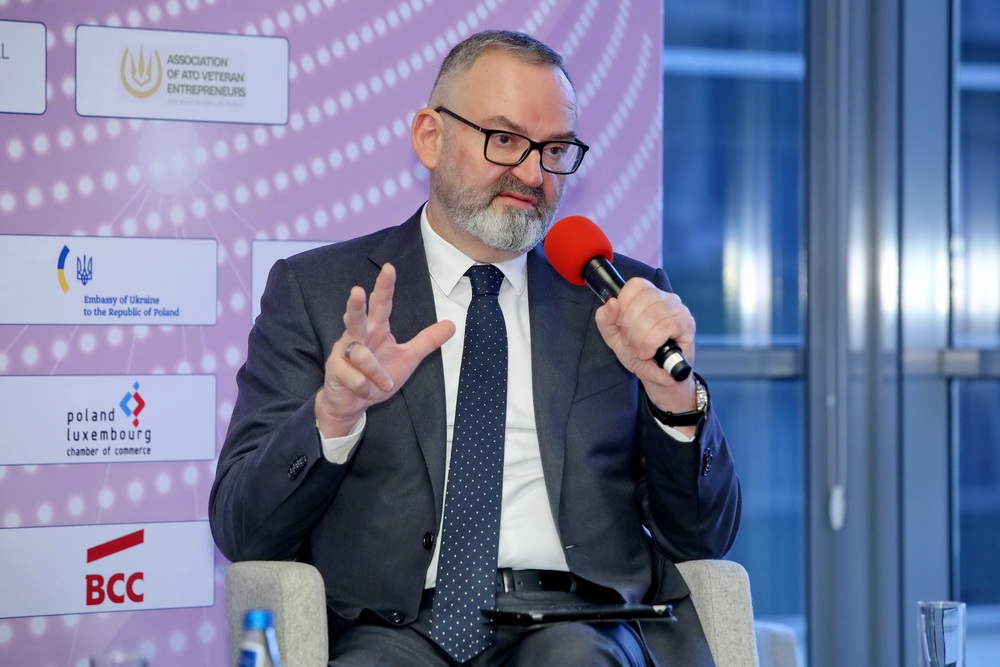
H.E. Fabrice Filliez, Ambassador Extraordinary and Plenipotentiary of the Swiss Confederation to the Republic of Poland, highlighted Switzerland’s commitment to supporting Ukraine and trilateral cooperation among Switzerland, Poland, and Ukraine.
“Switzerland has provided over CHF 5 billion in assistance to those affected by the war. In 2024, the government allocated an additional CHF 5 billion for long-term reconstruction. The first stage of the Swiss Cooperation Programme (2025–2028) allocates CHF 1.5 billion for economic recovery, public services, civil protection, and peacebuilding,” he stated.
He underscored the importance of the Poland–Ukraine–Switzerland cooperation triangle in contributing to strategic value chains, listing energy, transportation, mobility, water supply, construction, civil security, and shelters for Ukrainian schools as priority areas.
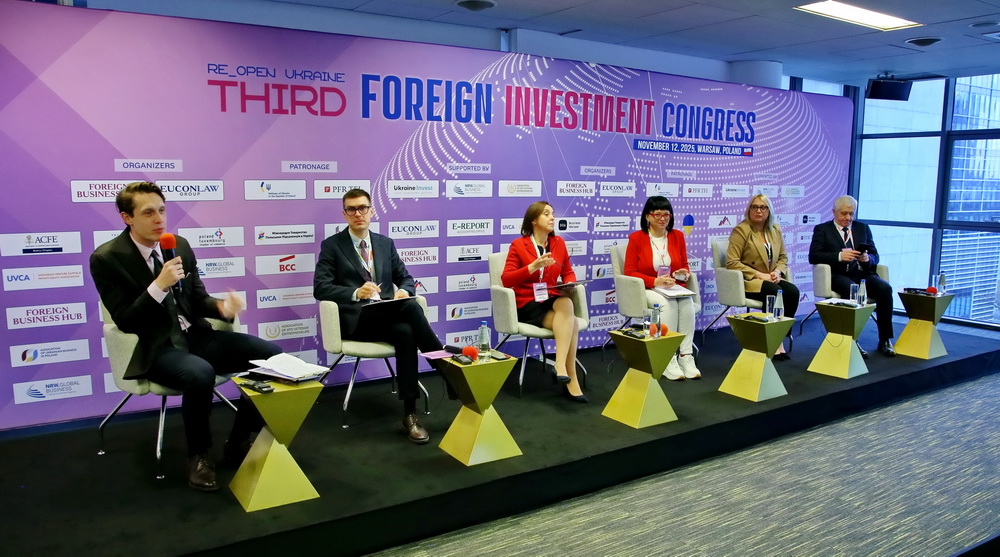
During the second panel discussion, dedicated to the topic “Investing in Unstable Times: How to Hedge Risks?”, participants examined key risks for investors, priority sectors for investment, the role of local partnerships, as well as tools for risk mitigation, including guarantees, insurance mechanisms, and international support programs.
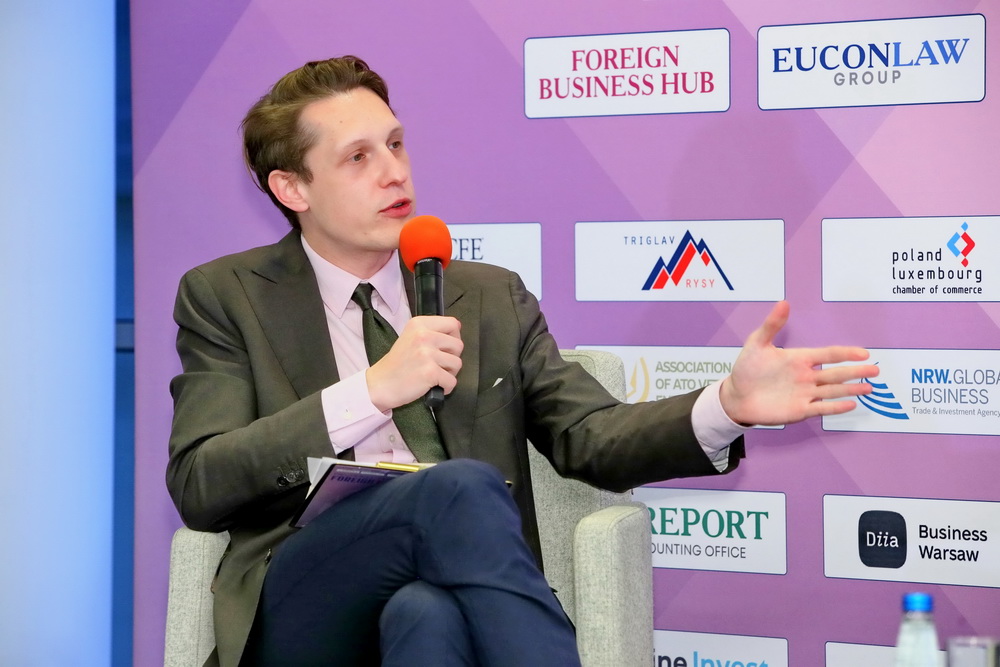
Bartlomiej Kot, Head of Warsaw Office, Aspen Institute CE (Poland), opened the panel by emphasizing the relevance of investing under conditions of instability and war. He stressed that the purpose of the panel was not only to discuss risks but also to identify practical tools and strategies that can help investors contribute to the development of Ukraine’s economy even during wartime.
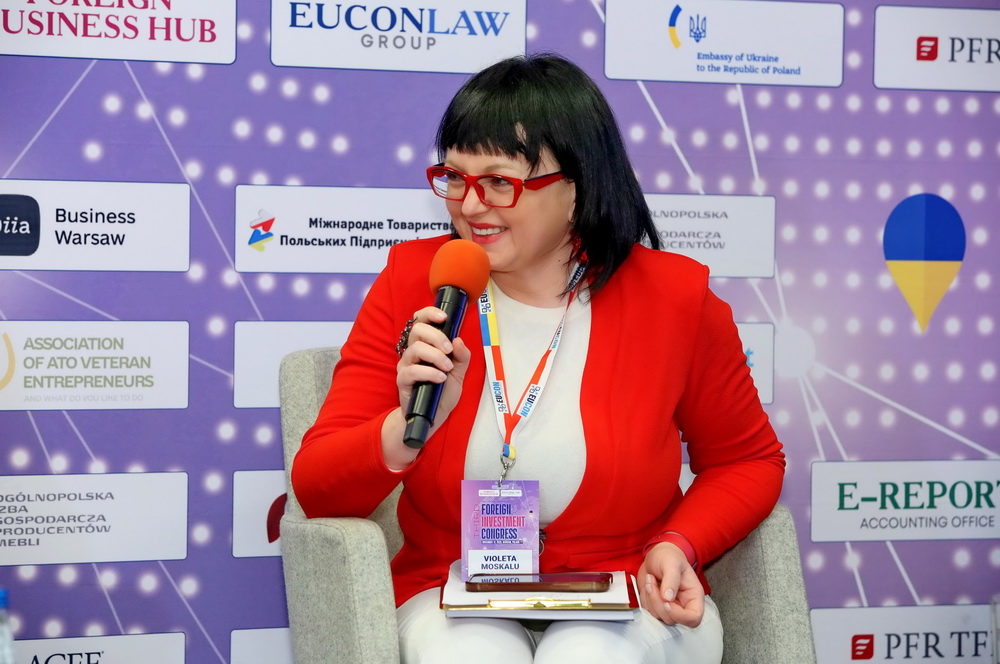
Dr. Violeta Moskalu, Founder & CEO, Global Ukraine & GBH (France), underscored that Ukraine is currently a unique “laboratory of innovation”, where experiments in resilience, crisis management, and decentralized governance are taking place. “There is no need to wait — delaying investments is costly,” she noted, adding that investments in local projects and community development are among the most promising opportunities.
She highlighted that since the Revolution of Dignity, Ukraine has been gradually moving toward a decentralized democracy and governance model, where economic initiatives are created by the people and for the people — opening new opportunities for investors. Moskalou urged not to postpone investments, as the foundations for growth and innovative solutions are being formed precisely now, under challenging conditions.

Viktoriia Savitska, Chief of Global Affairs, Epicentr Group of Companies (Ukraine), emphasized the importance of strong local partnerships and business flexibility to mitigate investment risks during the war. She noted that reliable local partners help accelerate processes and successfully implement projects even in difficult circumstances.
Savitska provided examples of the company’s adaptation, noting that Epicentr Group continued to invest in renewable energy, the agricultural sector, and logistics, while 46% of the company’s products are manufactured in Ukraine, supporting stability and growth.
She also highlighted the company’s focus on social responsibility: “Epicentr Group has created platforms to attract international financing to local initiatives and ensures access to construction materials and other resources.”
“An unwavering stance and strategic reorientation of priorities enable the company to continue operating, opening new facilities and demonstrating that investment in Ukraine is possible even during wartime,” Savitska summarized.
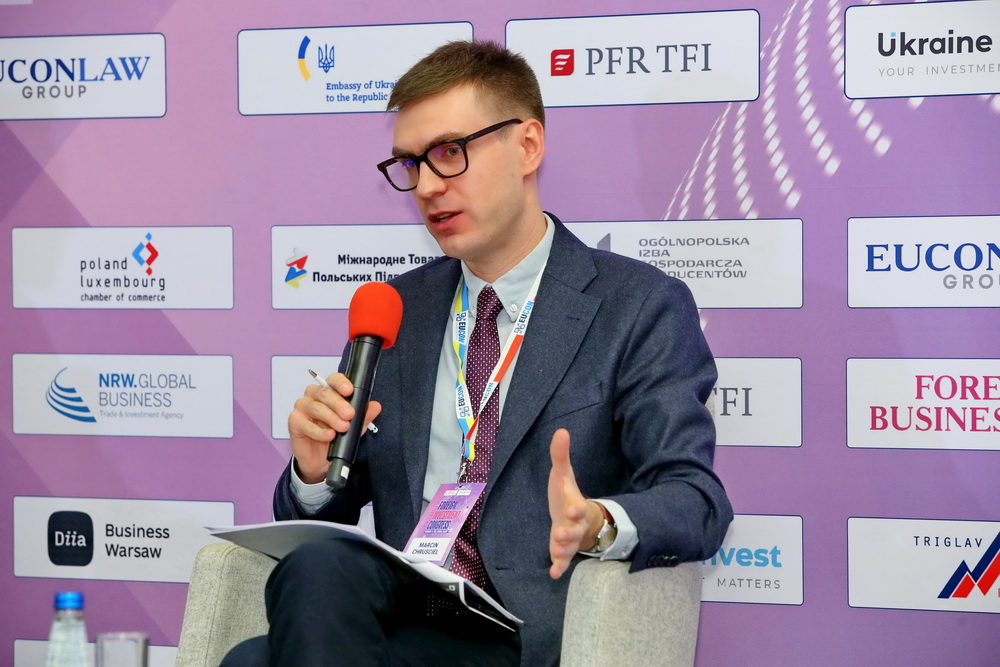
Marcin Chrusciel, Director of the Office for Polish–Ukrainian Development Cooperation, Ministry of Development Funds and Regional Policy (Poland), stressed that one of the most underestimated risks for investors in Ukraine is access to the workforce. He noted that over the past five years, Ukraine’s population has decreased by 8% (2020–2025), though the real situation may be even more severe due to the war and migration.
According to him, Ukrainian companies and foreign investors must take this risk into account when planning projects and look for innovative solutions to attract and retain employees through partnerships, training programs, and development of local expertise.
He also called for cooperation with international partners to mitigate the consequences of population decline and ensure stable business development, emphasizing that human capital remains a critical resource, even under conditions of war and economic instability.
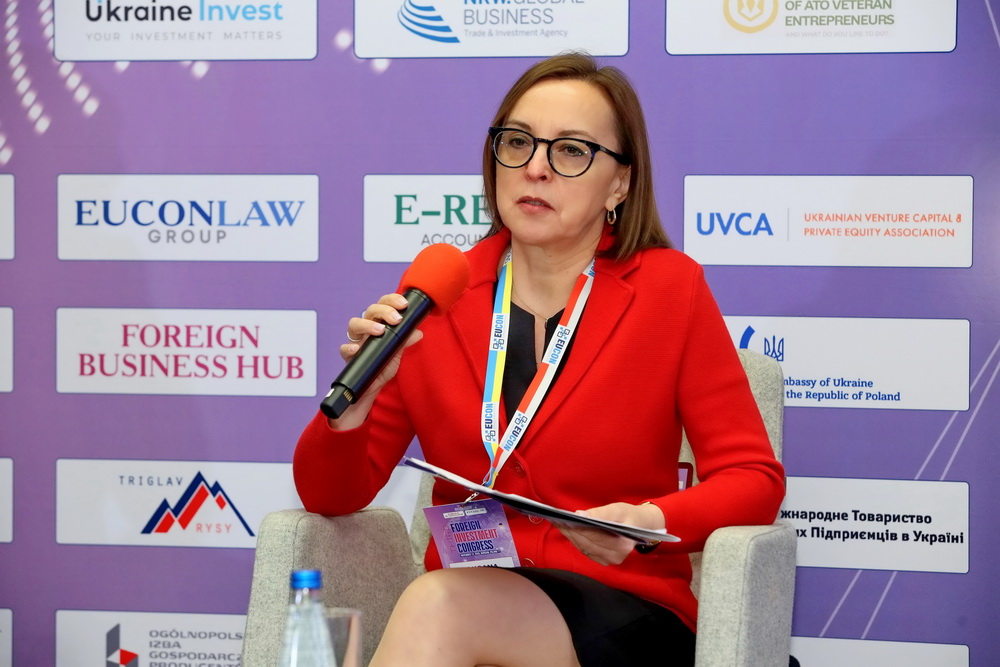
Oksana Strashna, Director, SME Direct Investments Program, Ukraine-Moldova American Enterprise Fund (USA), focused on the scale of risks in Ukraine, especially for small and medium-sized businesses, but highlighted an often overlooked factor — the resilience of Ukrainian entrepreneurs and companies.
She cited statistics: “After the start of the full-scale invasion in February–March 2022, nearly 90% of Ukrainian SMEs resumed operations by the end of the same year.” According to Strashna, this demonstrates that the real threat lies not in the risks themselves but in underestimating the ability of Ukrainian businesses to adapt and recover even under extreme conditions.
Strashna also described the Fund’s approach: “The Fund assumes military and business risks, relying on thorough due diligence — evaluating the founders’ reputation, management team experience, and the company’s ability to implement growth strategies, especially post-2022. The focus is on companies that not only survived but show strong potential and resilience.”
She emphasized that proper assessment of resilience and adaptability is key to successful investment in Ukraine, even during war, creating opportunities for attracting international capital.
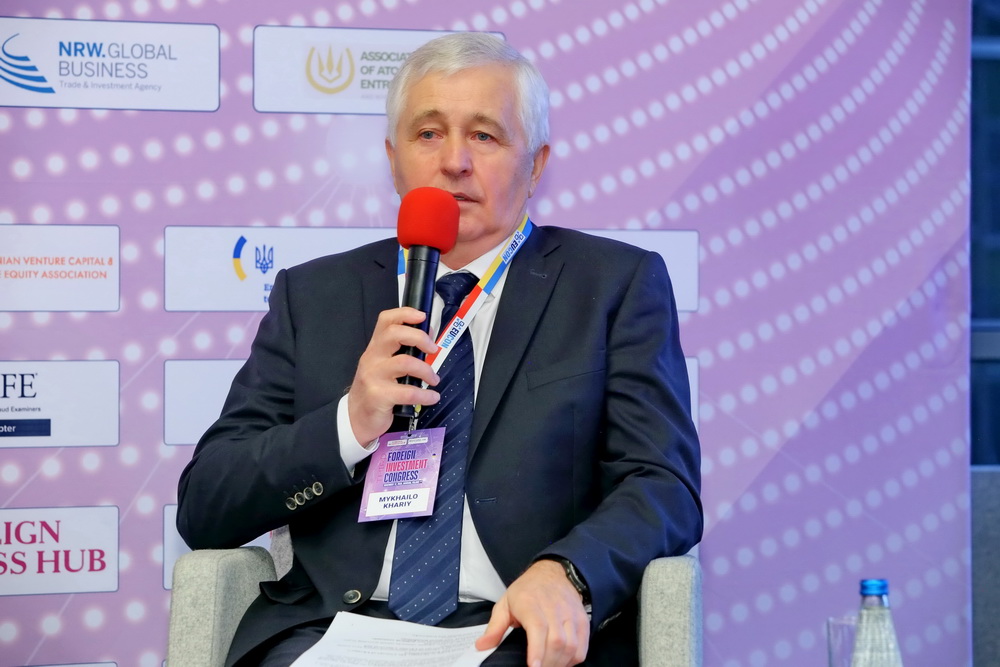
Mykhailo Khariy, Coordinator of the Civil Society Initiative “Transformation of Ukraine” (Ukraine), pointed out a critical issue in Ukraine’s investment climate — the absence of a strategic vision and national development plan. According to him, the lack of a clear strategy prevents effective attraction of foreign investment and limits business potential even in the most challenging times.
Khariy stressed that for successful recovery and development, Ukraine needs innovative economic policies, drawing on the experience of transformative reforms in other countries, including Poland, and integrating global best practices. He noted that Ukraine urgently needs coordination with international partners to create a shared long-term perspective that would address both survival and economic transformation.
He emphasized the need for the immediate implementation of a concrete action plan that would provide a clear vision and practical steps for business development and investment attraction.

During the third panel discussion, “Doing Business in Ukraine: From Transformation to a Barrier-Free Business Ecosystem for Global Capital,” participants examined the conditions for business development in Ukraine, investment support tools, promising economic sectors, and practical steps for entering the market.
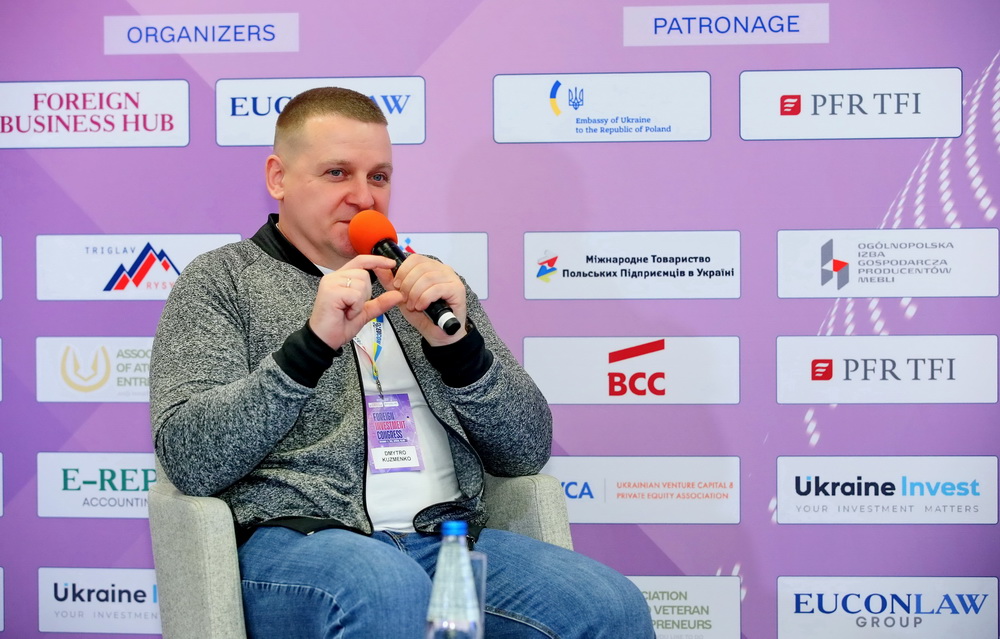
The panel moderator, Dmytro Kuzmenko, CEO of the Ukrainian Venture Capital and Private Equity Association (Ukraine), outlined the key topics of discussion, including: the current state of business in Ukraine — both local and international companies; available tools for supporting and stimulating investment; promising sectors; and practical steps for entering the Ukrainian market.
Mr. Kuzmenko noted that even after the start of the full-scale invasion, none of the companies united within the Association ceased their operations in Ukraine, and many companies and funds continued to invest actively.
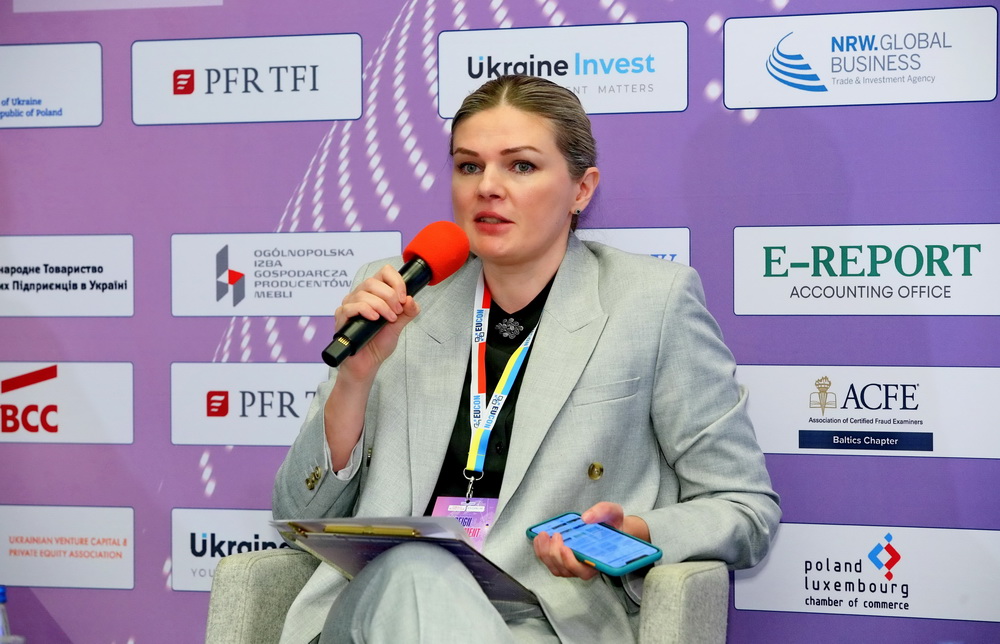
Maryna Khlystun, Executive Director of UkraineInvest – The State Institution “Investment Promotion Office” (Ukraine), spoke about the key tools available to support investors in Ukraine.
She emphasized the role of UkraineInvest as a “single window” for businesses, providing informational, analytical, expert, and post-investment support, as well as consultations on project financing and structuring. Ms. Khlystun provided concrete examples of foreign investments: Unilever UK ($20 million), a plant in Ternopil region (Germany, $150 million), Kroners Palm Austria ($200 million), Nestlé Switzerland ($50 million) and others, highlighting that the industrial and construction sectors remain among the leading drivers of Ukraine’s economic recovery and growth.
She also noted strategically important sectors for investment: renewable energy (solar, wind, biogas), digital technologies, manufacturing, and export-oriented agriculture.
Maryna Khlystun encouraged investors to enter the Ukrainian market, emphasizing that the government provides significant incentives and support for businesses even in difficult times.
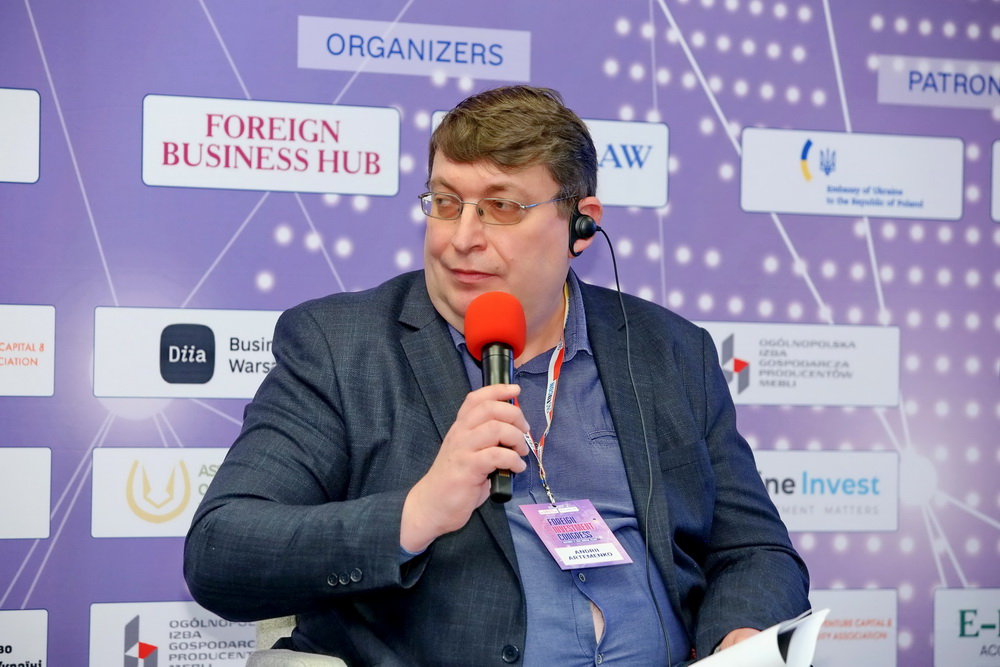
Andrii Artemenko, Director of the Department, State Customs Service of Ukraine, outlined the current state of customs regulation and measures supporting businesses.
Mr. Artemenko highlighted that the Customs Service is actively transforming legislation and aligning it with EU standards. He noted that during martial law, the state provided tax preferences amounting to 29 billion UAH in October alone, and 253 billion UAH over a ten-month period, making the present moment particularly advantageous for investment.
He presented tools for communication and business support: the “Single Window for International Trade,” a Telegram bot for quick access to information, and “HELP DES”, a communication service for citizens and foreign trade operators.
Andrii Artemenko encouraged investors to take advantage of available incentives and to integrate actively into the Ukrainian business environment, emphasizing the strategic importance of customs system development and the creation of transparent conditions for foreign investment.

Yaroslav Romanchuk, Managing Partner, EUCONLAW Group (Ukraine), shared practical experience in supporting international companies and investors in Ukraine and abroad.
He noted that all international investors who had cooperated with EUCONLAW Group before the full-scale invasion remained in Ukraine, and 20% of companies even increased their investments during the war. Mr. Romanchuk also emphasized Poland’s role as a “gateway to the EU” for Ukrainian exporters: “By establishing companies there, Ukrainian manufacturers successfully promote their products on EU markets,” he noted.
The speaker presented practical tools for foreign investors, including the Foreign Business Hub — a platform offering comprehensive support for launching businesses in Ukraine and Poland. He also presented the book “Business Law of Ukraine,” covering 17 areas of law; the publication is currently available in Polish, and translations into English, Czech, Japanese, and other languages are underway. Mr. Romanchuk stressed that for investors, it is essential to receive comprehensive solutions that address both legal and operational challenges, rather than standard consultations alone.
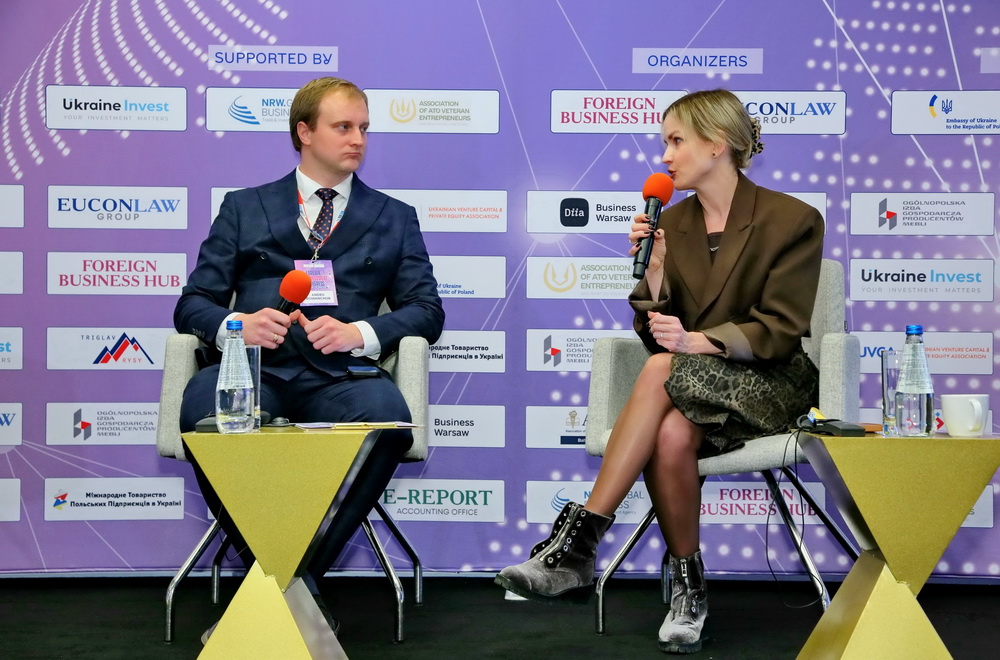
As a part of the Congress, an interview was held with Kristina Mikulova, PhD, Head of the Regional Hub for Eastern Europe, European Investment Bank (EIB, Luxembourg) — the largest lender of the European Union. The conversation focused on the EIB’s priorities in Ukraine, the evolution of its support from emergency assistance to strategic reconstruction, as well as the role of the private sector in rebuilding critical infrastructure.
The interview was conducted by Andrii Romanchuk, Senior Partner, EUCONLAW Group (Poland). Responding to a question about the role and mission of the European Investment Bank in Ukraine, Ms. Mikulova emphasized that the EIB is the “bank of the European Union,” its financial institution which conducts 90% of its operations within the EU — approximately €80 billion annually — while only 10% of projects are directed outside the EU. Among these countries, Ukraine is the number one priority, as a future EU member state.
She noted that in the first weeks after the invasion, despite typically lengthy procedures, the Bank swiftly provided Ukraine with almost €700 million in emergency support.
“Today, the Bank’s total investment portfolio in Ukraine amounts to €4 billion, of which €2.7 billion has already been allocated and implemented through concrete projects. These include hundreds of initiatives across different regions — around 500 subprojects, 120 of which have already been completed. These projects involve the restoration of schools and hospitals, water supply systems, local roads, administrative service centers, and other social infrastructure providing essential services to the population,” Ms. Mikulova stated.
Ms. Mikulova placed particular emphasis on the energy sector, which is currently the Bank’s central priority. She explained that due to massive attacks on Ukraine’s energy system and the expectation of a difficult winter, the Bank is operating in emergency support mode: assisting Naftogaz with gas procurement, financing the protection of critical substations in cooperation with Ukrenergo, and investing in the restoration of hydropower plants in Kaniv, Kremenchuk, and Dnipro.
Ms. Mikulova also reported that the EIB continues to support Ukraine’s long-term reconstruction, applying a differentiated “from border to frontline” approach, which accounts for varying risk levels and pressures on communities. Frontline regions receive 20% higher grant support, as they suffer the most from shelling and destruction. Additionally, she noted the Bank’s involvement in projects integrating Ukrainian infrastructure with the European system: “Recently, the first segment of a Ukrainian European-gauge railway between Chop and Uzhhorod was opened — a symbolic but important step toward integration with the EU Single Market.”
Ms. Mikulova emphasized that Ukraine’s recovery will require around €500 billion, and public and international resources alone are insufficient — active private-sector engagement is essential. The EIB is already supporting Ukrainian small and medium-sized businesses through partner banks by providing access to loans on improved terms.
She also announced that the Bank is preparing two new instruments to enable a larger inflow of investment:
- EU Flagship Fund for Ukraine — up to €500 million in investments; priority financing areas will be defined after the managing company is selected.
- A program for large Ukrainian and European companies — the EIB will cover up to 100% of war-related risks; minimum project size: €25 million; total mobilization potential: €800 million; applications open in Q2 2026.
“These instruments aim to demonstrate a new model of partnership between the state and the private sector and to help attract private capital to Ukraine’s reconstruction much faster and at a significantly larger scale,” Kristina Mikulova concluded.
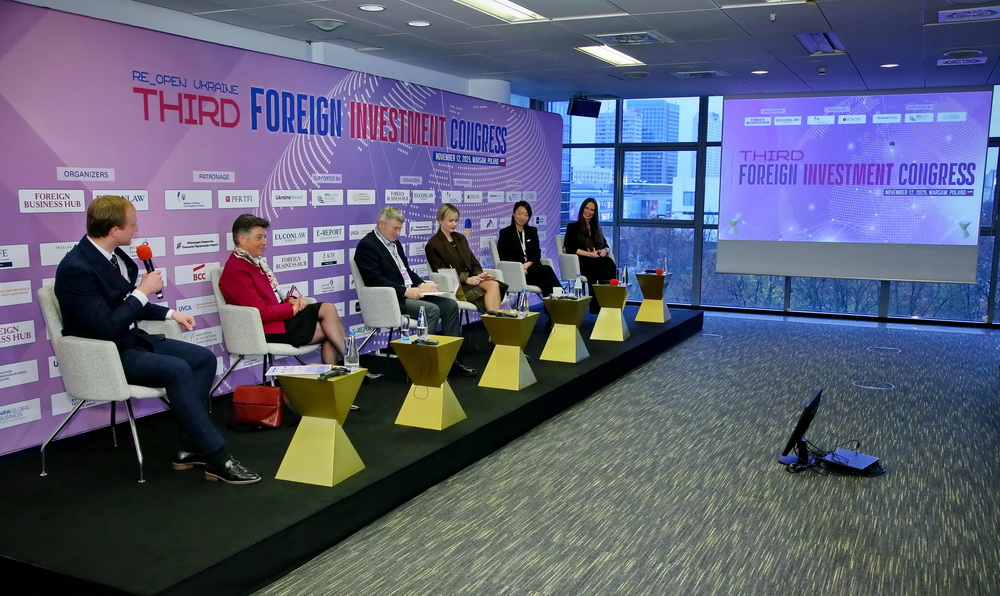
The fourth panel discussion focused on one of the most pressing issues for the Ukrainian economy: how to transition from crisis-mode financing to stable and long-term private investment, which will form the foundation for the country’s recovery and development.
Experts from leading international financial institutions, funds, and investment initiatives discussed which models are already working, what prevents the scaling of private investment, and which approaches are needed to ensure reconstruction that meets the standards of the 21st–22nd centuries.
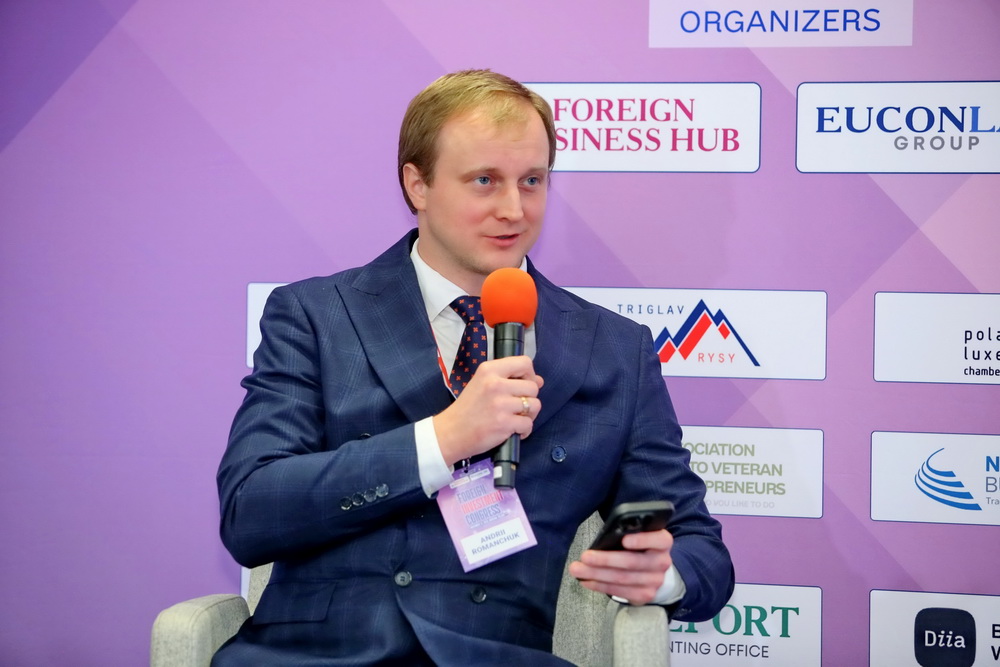
Opening the panel discussion, Andrii Romanchuk, Senior Partner, EUCONLAW Group, emphasized that over the past four years, Ukraine has received unprecedented volumes of financial support — both from international institutions and through targeted programs for small and medium-sized businesses and infrastructure. At the same time, he noted that the key question now is how to transition from a crisis budget model to sustainable private financing and a fully fledged investment-driven economy.
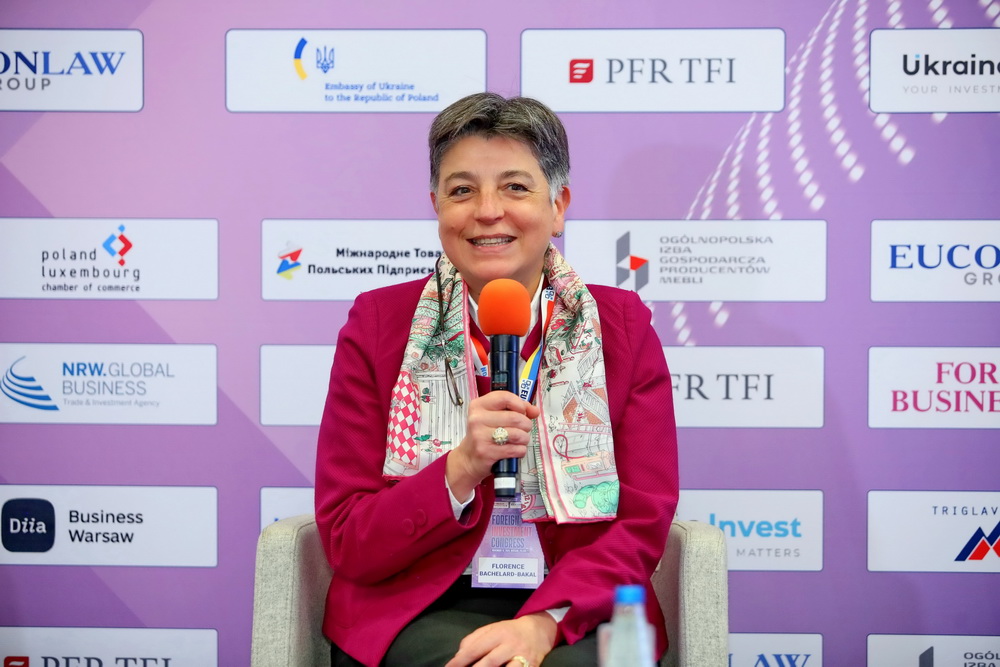
During her speech, Florence Bachelard-Bakal, AD, Regional Head, Manufacturing and Services, European Bank for Reconstruction and Development (EBRD, United Kingdom), outlined the role of the EBRD as one of Ukraine’s key financial partners and highlighted the unprecedented scale of investments the Bank has been directing to support the Ukrainian economy during wartime.
She stressed that Ukraine is not only a recipient of international assistance but also a full shareholder of the EBRD — underscoring strategic partnership and shared responsibility for the country’s reconstruction. “Following the start of the full-scale invasion, the Bank’s shareholders increased its capital by €4 billion, allowing for a substantial expansion of the investment portfolio. Since February 2022, the EBRD has already invested €8.4 billion in Ukraine’s economy, and in just the first months of 2025, the volume of new projects reached nearly €3 billion,” Ms. Bachelard-Bakal noted.
Among the key sectors, she highlighted: energy and energy security, railway logistics, critical municipal infrastructure, the banking sector, support for small and medium-sized businesses.
She also noted the Bank’s emphasis on “green” recovery: “More than half of the annual portfolio is green-labeled and invested in energy efficiency, industrial modernization, low-carbon technologies, and the renewal of urban infrastructure.”
Florence Bachelard-Bakal added that the EBRD actively supports the development of private capital and investment funds, including cooperation with Horizon Capital, and plans upcoming investments in technology companies and export-oriented businesses.
She explained that the Bank works directly with large projects of over €10 million, while smaller investments are implemented through Ukrainian partner banks — enabling support for both strategic economic sectors and SMEs.
However, she noted that ongoing missile and drone attacks continue to hinder the inflow of private investment:
“To be more successful, we need the bombings to stop. Ending active hostilities will immediately increase grant support and enable the attraction of several times more private investment.”
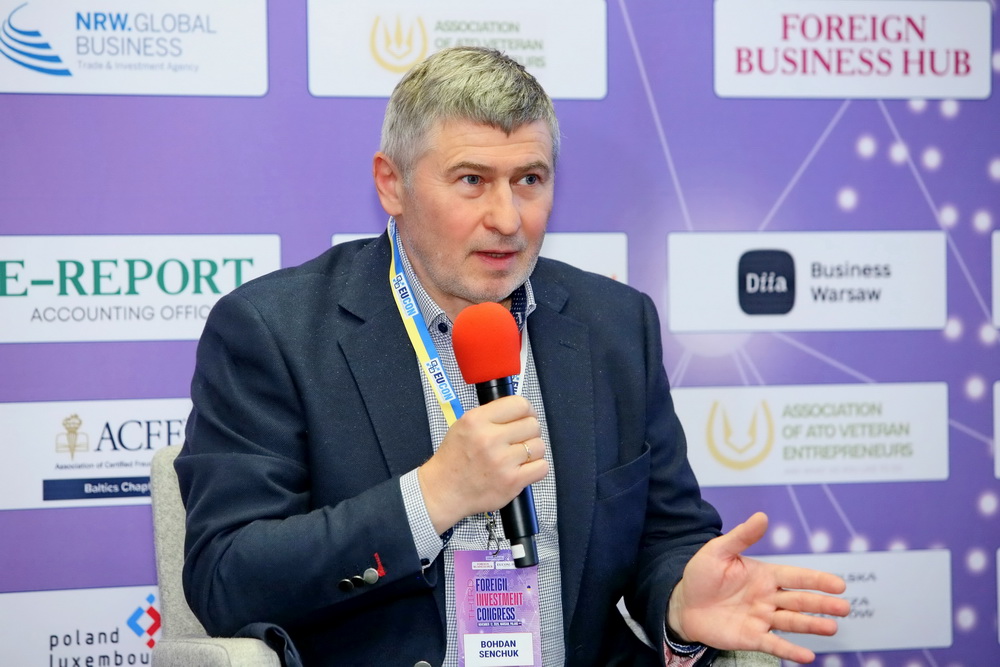
Bohdan Senchuk, SBA President; Swedfund PA Advisor; WaterWorx Coordinator and Innovate Ukraine Accelerator (Sweden), spoke about the critical role Swedish companies have played in supporting Ukraine’s economy and military since the first days of the full-scale invasion.
He coordinates assistance and implements projects under Swedfund and the Accelerator Program aimed at restoring critical infrastructure in the sectors of water supply and sewage, heating, energy supply, digitalization, transport, and healthcare.
He noted that since 2023, more than 40 infrastructure projects have already been successfully completed, with special attention given to water utilities located on the frontline: “In the first phase, each of the five water utilities received $1 million.”
He emphasized the importance of high technical standards in tenders:
“Technical criteria should account for 80% of the evaluation, and price only 20%.”
Without such requirements, quality European companies cannot compete, and tenders through Prozorro often do not allow high-tech suppliers to win due to poorly defined technical specifications.
According to Senchuk, only strict adherence to technical standards will ensure that infrastructure recovery is high-quality, efficient, and sustainable — a critical factor for Ukraine’s post-war reconstruction.
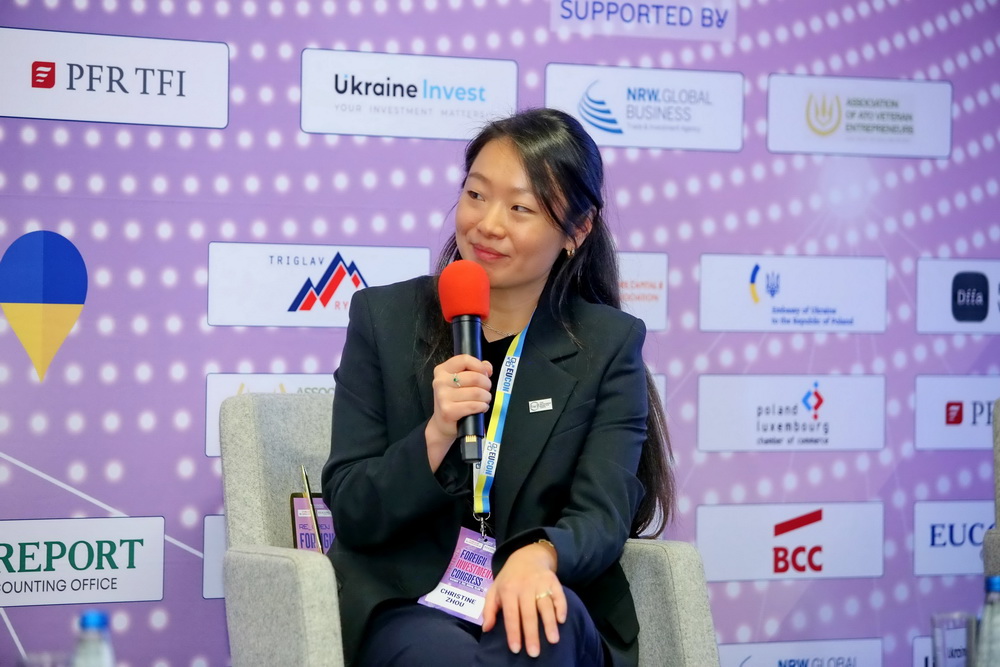
Christine Zhou, Executive Director at Bankers without Boundaries and Partner at Innovate Ukraine (United Kingdom), presented the work of her organization, which unites former investment bankers and specializes in financing sustainable development projects in Ukraine.
She noted that the Innovate Ukraine program, funded by the UK Government, focuses on innovation and new technologies in energy-sector recovery.
Ms. Zhou emphasized that the key challenge for innovation is the so-called “Valley of Death” — the gap between technological development and commercial scaling, where most technologies fail.
“And during wartime, innovative projects face a double risk: technological and military,” she noted.
She explained that Bankers without Boundaries helps Ukrainian innovators find commercial partners, combine grants with investments, reduce risks, and prepare projects to the level of bankability — enabling financing by major international institutions such as the EBRD and EIB.
“Our mission is to guide Ukrainian innovations through the Valley of Death toward the point where large institutions can finance them,” Zhou emphasized.
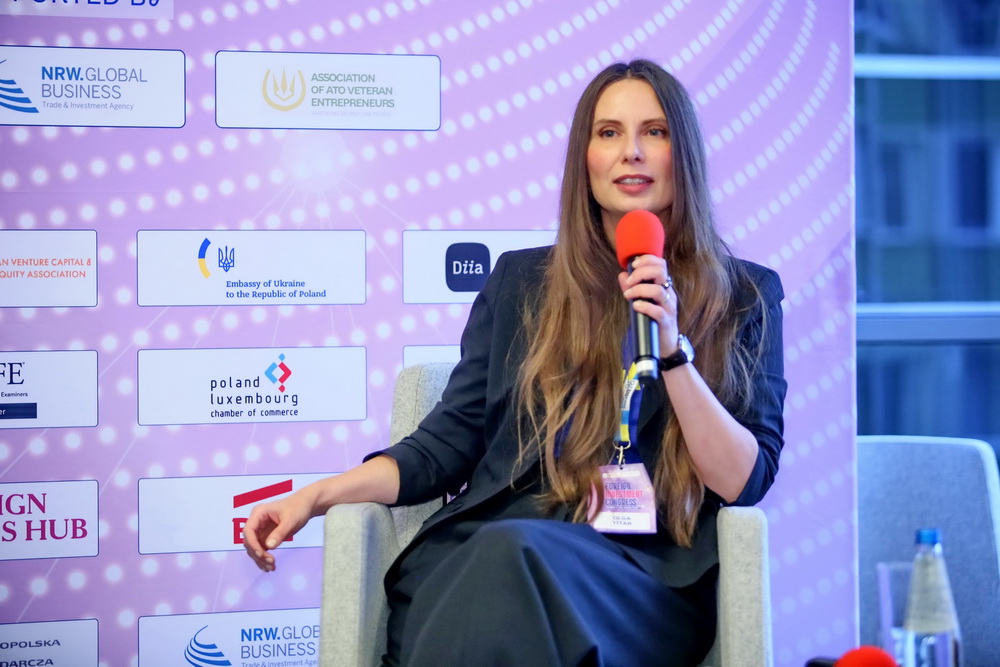
Meanwhile, Olga Titar, Partnerships & Growth Lead at Crowd Ukraine Invest AG (Germany), stressed the importance of transparent and regulated investment mechanisms and partnerships to build investor trust. She noted that Crowd Ukraine became the first German company specializing in mobilizing private European capital for Ukraine’s reconstruction, offering investors secure participation through regulated financial instruments and Germany’s state guarantees.
Ms. Titar paid special attention to green and ESG investments, noting that Crowd Ukraine cooperates with international technology and environmental partners to ensure sustainable development and environmental responsibility across all projects.
She also outlined the company’s plans to create more than 50 co-working and co-living hubs across Ukraine by 2030 to support IT specialists, digital natives, and startups while fostering local community development.
Olha Titar emphasized that the main challenge is ensuring trust and safe investment instruments:
“This is why Crowd Ukraine combines private investment with state guarantees and strategic partnerships with municipalities — laying the foundation for attracting major players such as the EBRD and EIB.”
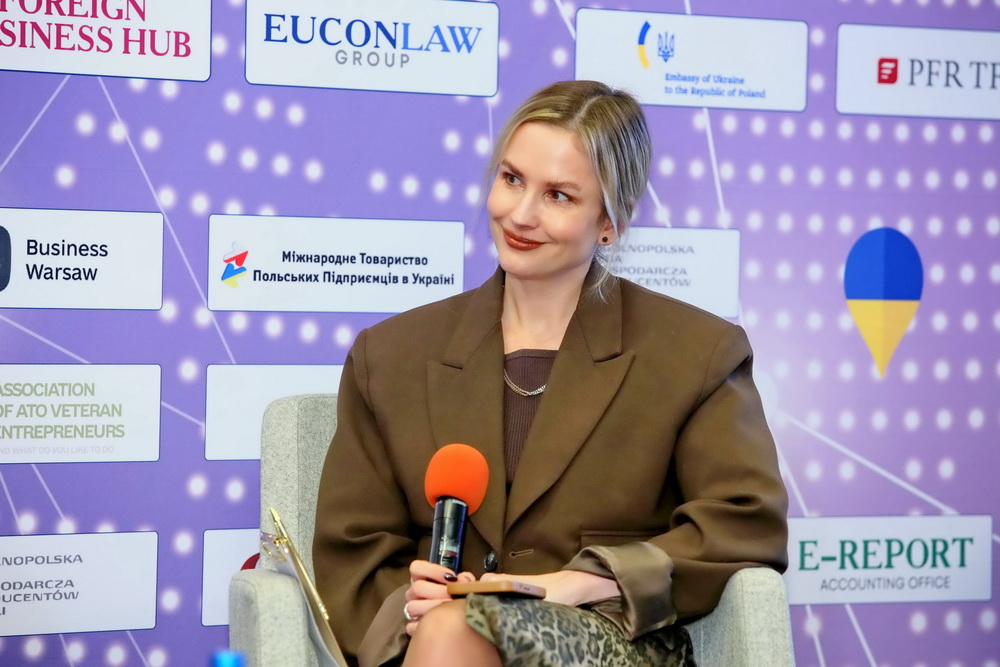
Kristina Mikulova, PhD, Head of the Regional Hub for Eastern Europe, European Investment Bank (EIB, Luxembourg), highlighted the crucial role of local authorities in Ukraine’s reconstruction. According to her, roughly one-third of all EIB operations in Ukraine are implemented directly through cooperation with communities and local governments.
“Currently, the Bank is implementing more than 500 projects with a total value of nearly €800 million. Among the priority programs are the District Heating Program (€200 million) implemented through three Ukrainian banks (Oschadbank, Ukreximbank, Ukrgasbank), and the Water Recovery Program (€200 million), of which the first €100 million has already been provided, including €50 million in European Commission grants,” she explained.
She added that the EIB actively works on the ground, with support from UNDP and GIZ, organizing regular field visits to regions to assess community needs and ensure the effective restoration of infrastructure.
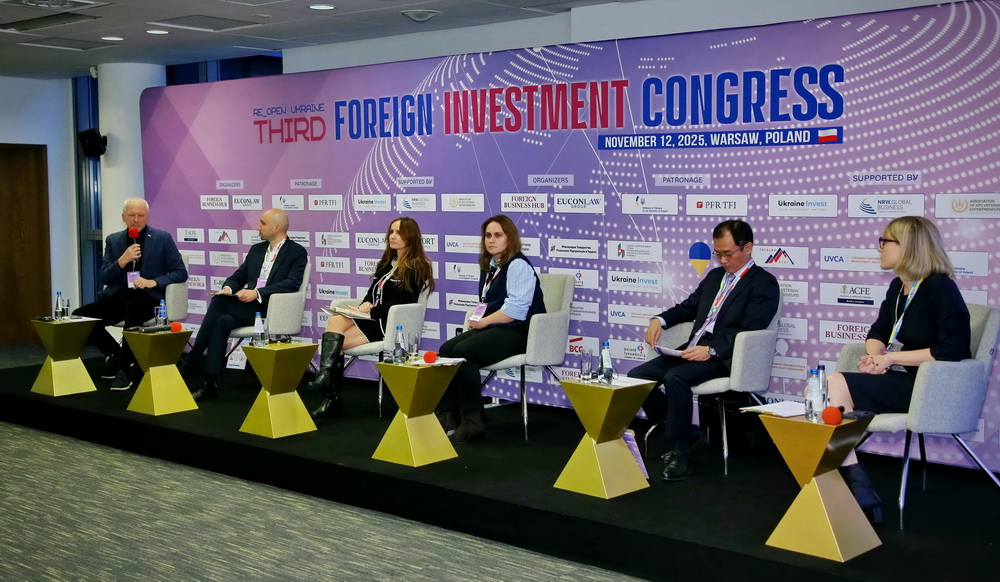
The fifth panel discussion, “From Aid to Investment: Financial Instruments and Solutions for Sustainable Development of Ukrainian Regions,” focused on a key question for the country: how to transition from a donor-support model to full-scale investment-driven development — even now, during wartime. The panelists explored which instruments can pave the way for private and institutional capital, what is currently holding investors back, and which cooperation formats are already proving effective in practice.
Special attention was given to the role of the private sector — particularly venture and private capital — which creates projects, forms investment pipelines, and can become a driving force in shifting from an aid-based to an investment-based economy.
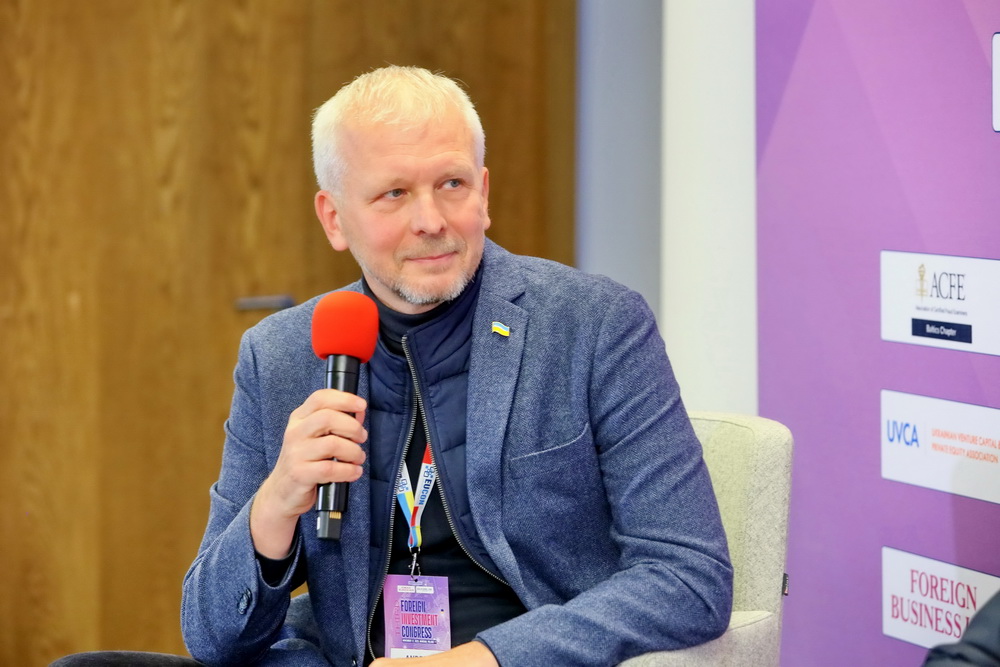
Panel moderator Andriy Kolodyuk, Chairman of the Supervisory Board, Ukrainian Venture Capital and Private Equity Association (UVCA, Ukraine), opened the discussion by noting that over 25 years he has personally invested in dozens of Ukrainian companies and continues to do so even during the war — his latest investment took place just two months ago. He emphasized that today UVCA unites more than 50 funds, whereas in 2014 there were only seven, demonstrating the rapid development of Ukraine’s investment market.
Mr. Kolodyuk also presented findings from UVCA’s “Stormy Decade” study, which showed that Ukrainian entrepreneurs attracted $10 billion in investment over the past ten years, the majority of which was private capital.
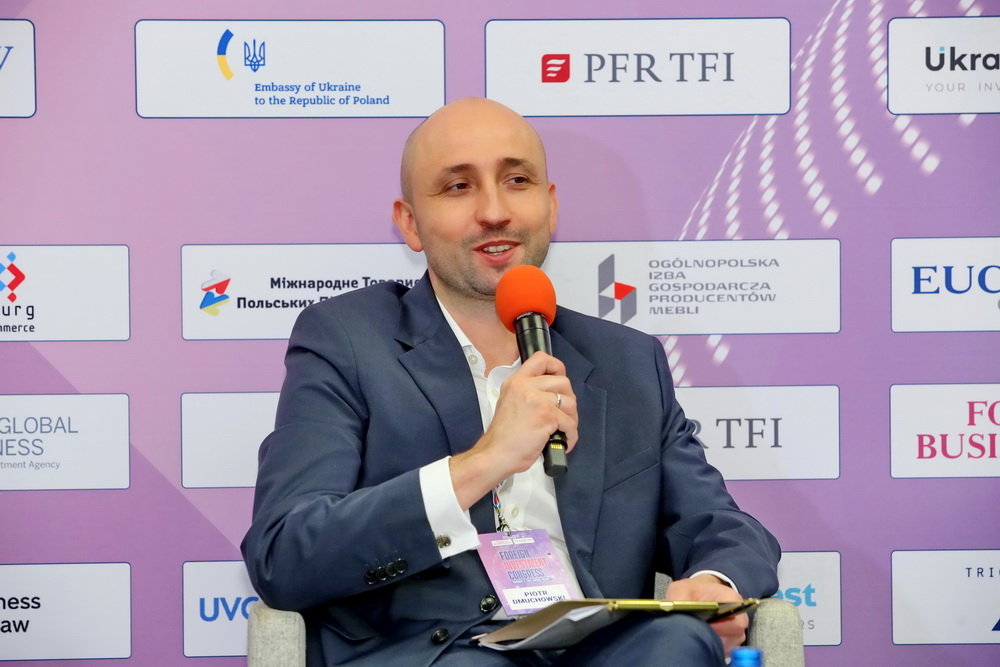
Piotr Dmuchowski, CEO of PFR TFI (Poland), spoke about Poland’s approach to investing in Ukraine. PFR actively co-invests alongside Polish companies already operating in Ukraine — currently more than 600 companies.
“The core principle is a reliable Polish partner who knows the market well,” Dmuchowski said. He recalled a successful 2023 co-investment case with UVCA, noting that without the support of Poland’s export credit agency KUKA, the investment would not have been possible.
Mr. Dmuchowski also reported that the PFR Group is one of the largest investors in private and venture funds in the region, with a total investment volume of nearly $1 billion. Separately, the company invested $30 million in a fund supporting dual-use and defense-sector projects directly connected to the Ukrainian market.
He emphasized that Poland’s experience demonstrates a practical commercial path for attracting capital to Ukraine: through local partners, guarantees, fund-of-funds models, and investments in dual-use and defense-related projects.
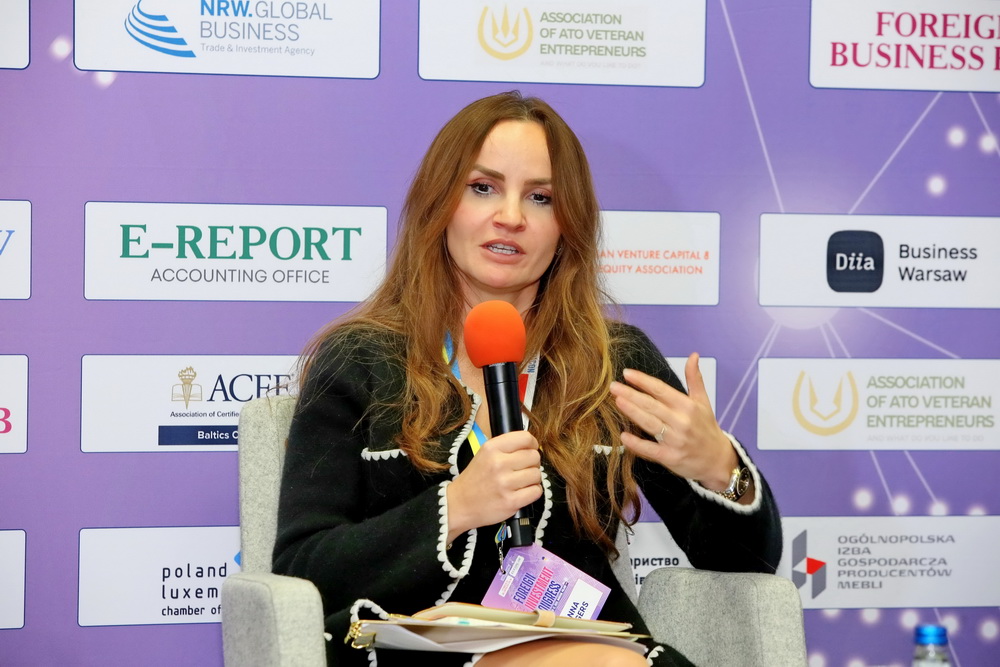
Anna Rogers, Director of International Development at TheCityUK (United Kingdom), underscored that the global trend shows a decline in official donor aid, pushing countries toward models where the private sector plays the key role. She stressed that for international investors, factors such as regulatory predictability, system reliability, investment protection, and unrestricted capital movement are critical.
Rogers also highlighted the importance of a developed risk insurance market, which, in combination with state guarantees, can become one of the most powerful instruments for attracting investment into Ukraine.
She pointed out that previous attempts to create a state war-insurance mechanism in Ukraine did not yield the expected results: currently, only temporary compensation schemes exist, and they require substantial refinement.
Ms. Rogers emphasized the need for new financial instruments, such as alternative insurance models, risk pools, and financial products linked to insurance obligations. At the same time, she warned about the risk of coverage gaps, where local insurance companies may exclude critical items, creating hidden risks for investors.
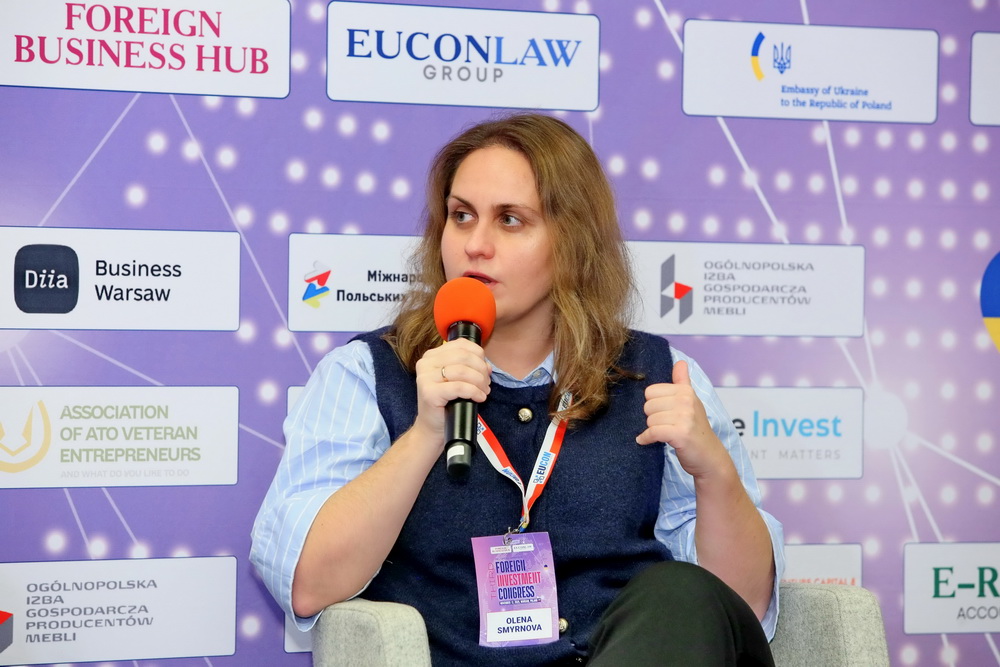
Olena Smyrnova, Director and Head of Ukraine Office, Swedfund International (Sweden), noted that investors traditionally rely on stability — something Ukraine cannot fully guarantee during wartime. For this reason, the first investors entering the market today remain local businesses as well as international financial institutions and development funds.
She stressed that the key role of such institutions is to set a precedent and reduce risks for private investors, thus opening the path to broader capital inflows. Olena also noted that her organization already has a number of approved investments in Ukraine that will soon be officially announced.
Ms. Smyrnova added that Swedfund’s main areas of work include energy and climate, food systems and agricultural value chains, and financial inclusion.
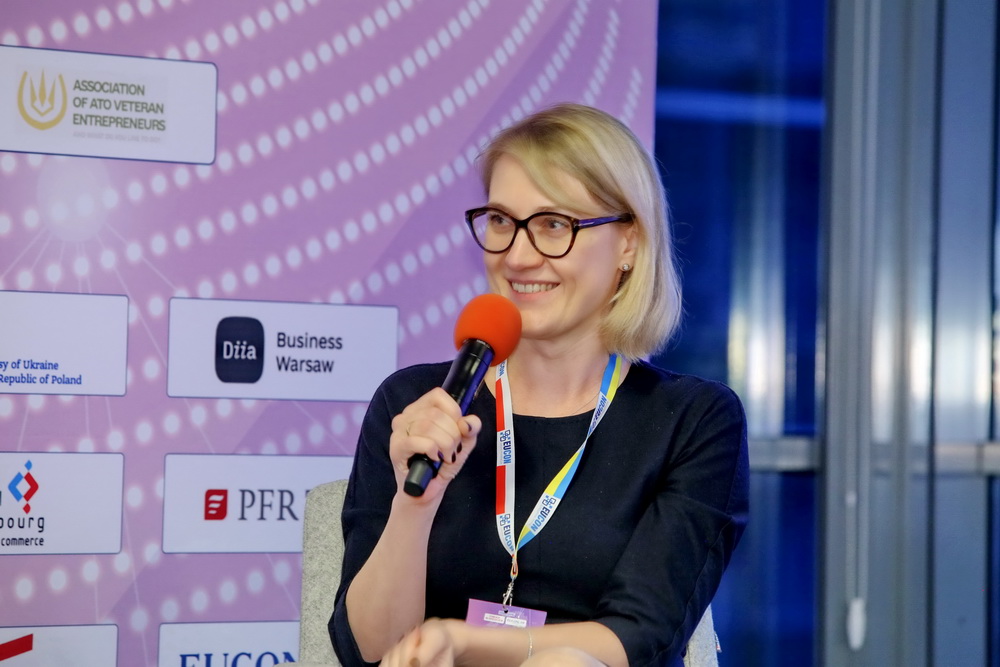
Svitlana Babak Andersen, Managing Director and Co-Head of Healthcare & Ukraine, Impact Fund Denmark (Denmark), outlined their approach to investing in Ukraine, emphasizing that the fund’s activities did not cease even after the start of the full-scale invasion. Impact Fund Denmark actively supports projects in agriculture, agri-tech, electronics, metalworking, private equity, and the banking sector.
Svitlana highlighted that for expanding investment, risk guarantees, political risk insurance, and protection from potential losses are particularly important.
She also outlined the key criteria for investment: companies that enhance Ukraine’s economic resilience, generate exports, support technological advancement, and meet the country’s reconstruction needs.
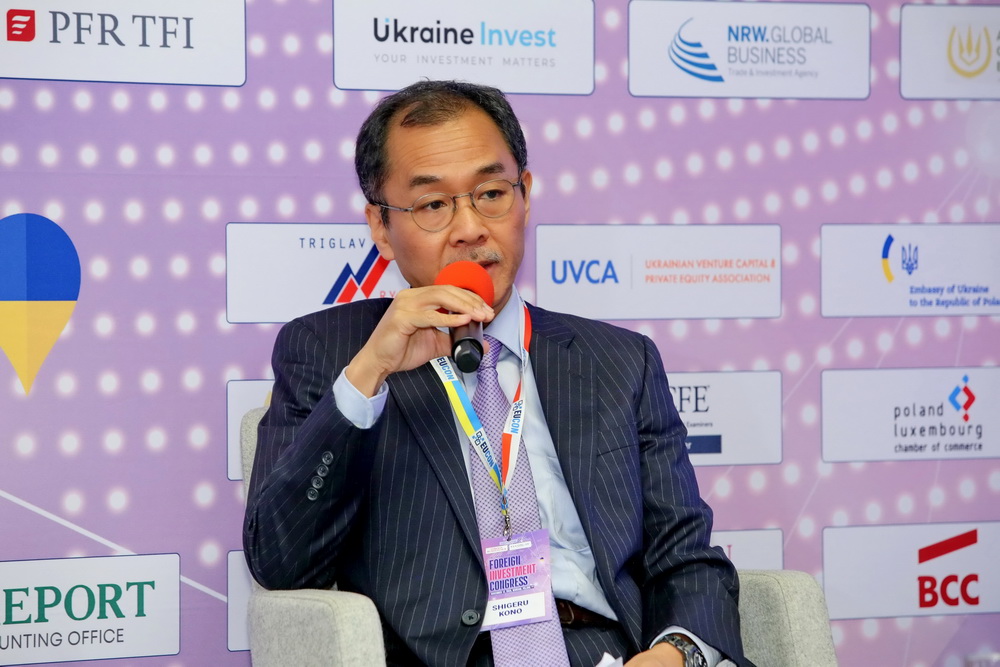
Shigeru Kono, Advisor, JETRO Kyiv (Japan), explained that Japanese companies are extremely cautious about risks and therefore highly value on-site visits and personal engagement with local partners.
“Direct contacts, access to local partners, and real-time market insights are essential for building trust with Japanese investors,” he stressed.
He noted that aligning Ukraine’s economy with EU standards will improve project quality and attract more Japanese capital. Kono highlighted the main areas of interest for Japanese companies: industry, infrastructure, technological sectors, and potentially dual-use and electronics projects.
In conclusion, he added: “To attract Japanese business, Ukraine must create conditions for their physical presence and ensure safe, predictable frameworks for cooperation.”
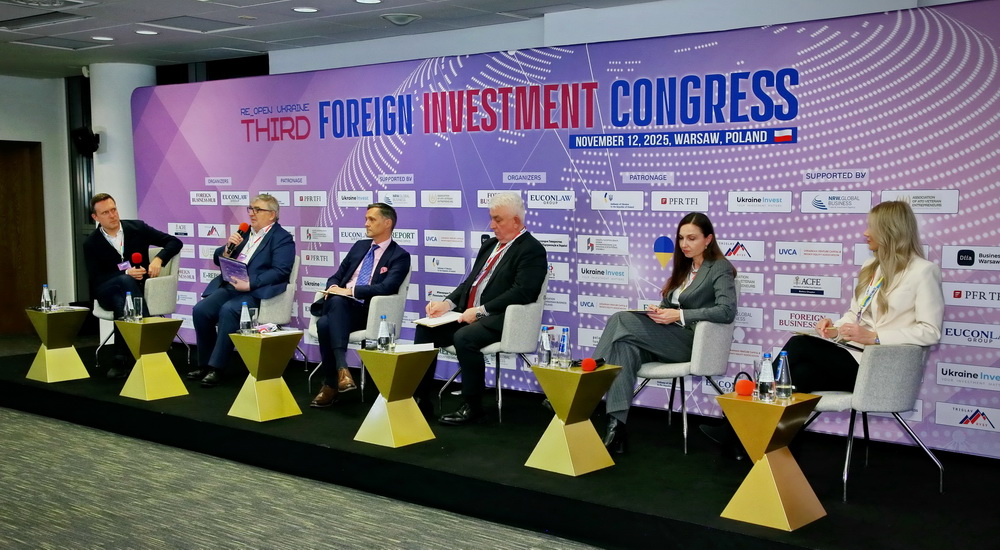
The final panel discussion, “Economic Ambassadors: How Business Associations Build Trust and Open New Horizons for Investment in Ukraine,” was moderated by Kostantin Magaletskyi, Co-Founder of SUP and Green Recovery Fund Ukraine (Ukraine).
During the panel, participants discussed the importance of close cooperation among business associations to strengthen economic ties and create new opportunities for Ukrainian companies in the European market. Special attention was given to the role of public and private instruments in stimulating economic cooperation between countries.
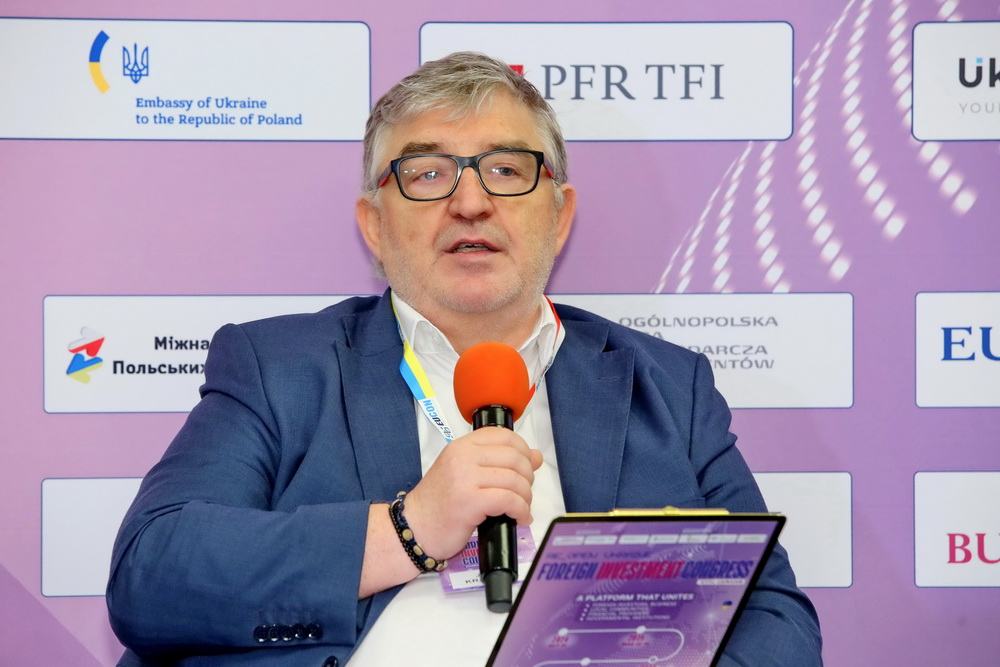
Jacek Krawczyk, Advisor to the President of the Lewiatan Confederation (Poland), spoke about the association’s active role in bringing Ukrainian organizations into BusinessEurope — the largest European business association, uniting 36 countries, including Switzerland, Turkey, and Norway.
He emphasized the importance of gradually integrating Ukrainian organizations into the European business environment, given the complexity of European procedures and the need for professional support.
He noted that Lewiatan’s initiatives include arbitration and mediation training for Ukrainian lawyers, as well as special programs for Ukrainian women business leaders.
Mr. Krawczyk also highlighted that the Confederation provides daily support to Ukrainian entrepreneurs by offering necessary resources and office space in Warsaw, helping to strengthen business development and economic ties between the two countries.
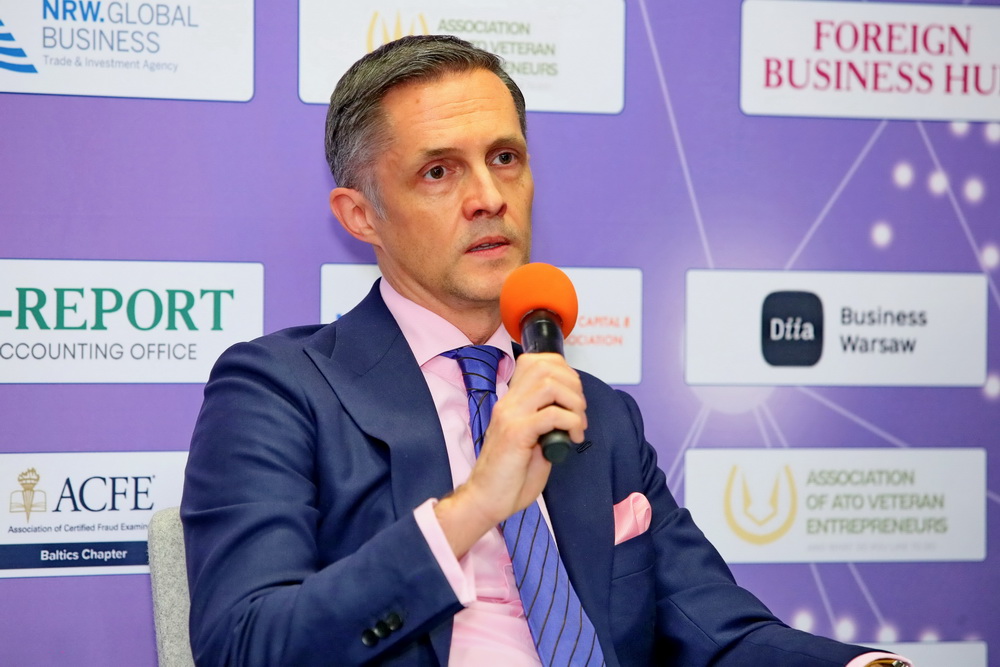
Lukasz Bernatowicz, President of the Employers’ Association BCC (Business Center Club, Poland), spoke about the work of the BCC Commission on Investments in Ukraine, which for the past two years has been providing expert consultations on investment-support instruments and cooperation with Ukrainian companies.
He emphasized the importance of integrating Polish and Ukrainian entrepreneurs through business events, conferences, and economic missions held in Kyiv and Rome, with new missions planned in Turkey.
The speaker pointed out a challenge: many businesses still do not take advantage of available support instruments, such as KUKA, PFR TFI programs, and initiatives offered by the Ministry of European Funds.
He paid special attention to B2B projects, citing the example of EUVIC, which invested in several Ukrainian cities (Kyiv, Lviv, Vinnytsia, Kharkiv), acquired three companies, and continues to work with Ukrainian founders while maintaining joint ventures.
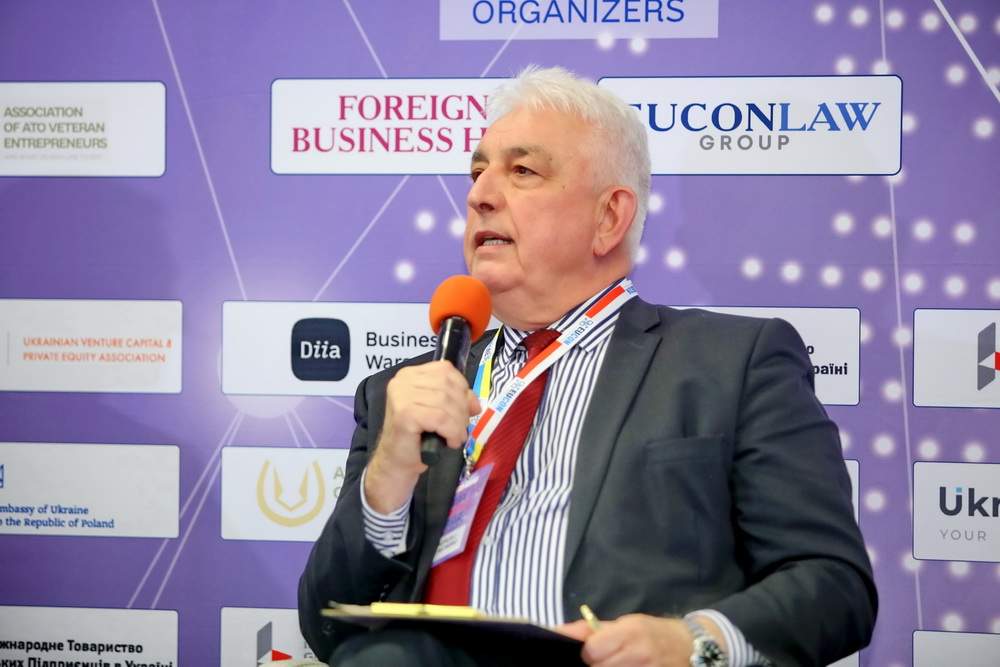
Andrzej Szumowski, Vice President, Director of the Foreign Relations Department, Polish Chamber of Commerce (Poland), emphasized the historical closeness between Poland and Ukraine and the importance of supporting Ukraine during difficult times.
He noted that modern Ukraine needs development, not just recovery, and programs such as Team Poland for Ukraine help achieve this through active business partnerships. He stressed the importance of familiarity, mutual understanding, and trust between entrepreneurs — key foundations for joint initiatives and investments.
Szumowski also highlighted practical aspects of supporting Ukrainian businesses, including joint development projects, public and private support instruments, and the prospects for scaling cooperation through B2B initiatives. He emphasized that Poland is ready to support Ukraine not only financially but also by creating a network of resources, consultations, and working platforms for Ukrainian entrepreneurs.
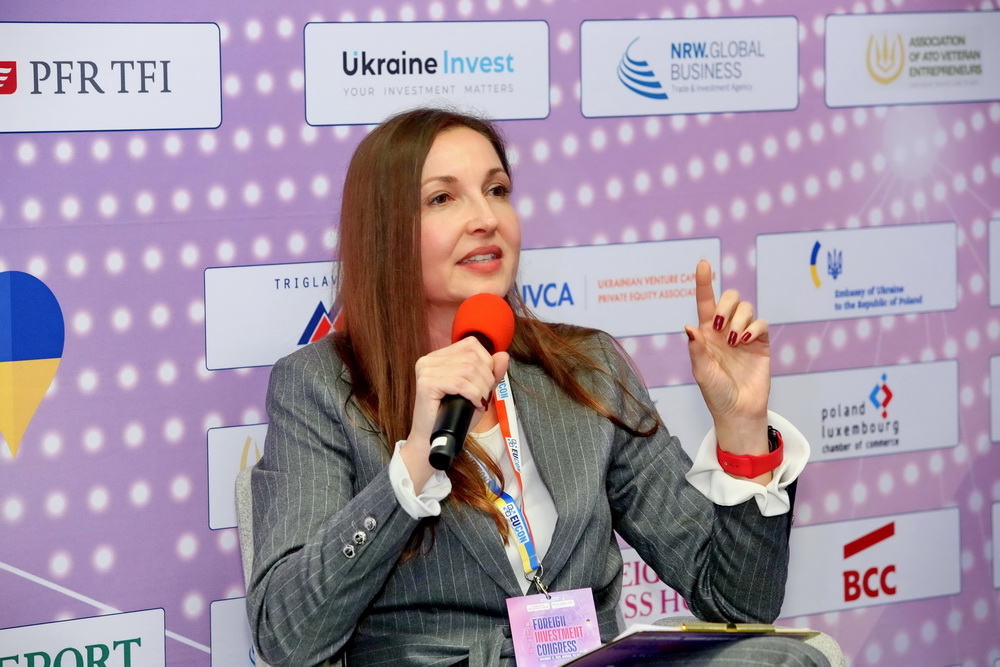
Sylwia Krason-Kopanierz, Vice President of the Board of the International Society of Polish Entrepreneurs in Ukraine (MSPPU, Ukraine), spoke about the activities of MSPPU, which unites around 70 Polish companies operating in Ukraine across various economic sectors.
She noted that before the war, the Society actively strengthened the position of Polish enterprises in Ukraine, promoted their interests, and built trust with Ukrainian business partners. After the invasion, MSPPU shifted its focus to supporting businesses from both countries through the development of contacts, networking, and assistance in joint projects.
Sylwia Krason-Kopanierz emphasized that the implementation of potential initiatives requires financial support from the state, which would allow Ukrainian and Polish companies to cooperate more effectively and unlock new economic opportunities.

Julia Kovalczuk, Deputy Director of the Relations and Development Department, Union of Entrepreneurs and Employers (ZPP, Poland), spoke about the support provided to Ukrainian companies in Poland. She noted that in 2023–2024, the Union assisted over 300 Ukrainian enterprises with relocation and export operations to Poland.
She also described the implementation of individual B2B meetings and market and sector mapping for potential cooperation, sharing an example of collaboration between a Polish company and Ukrainian firms in the drone sector.
Ms. Kovalczuk emphasized that such practical tools help Ukrainian businesses integrate into the European market and open new opportunities for joint investment and development.
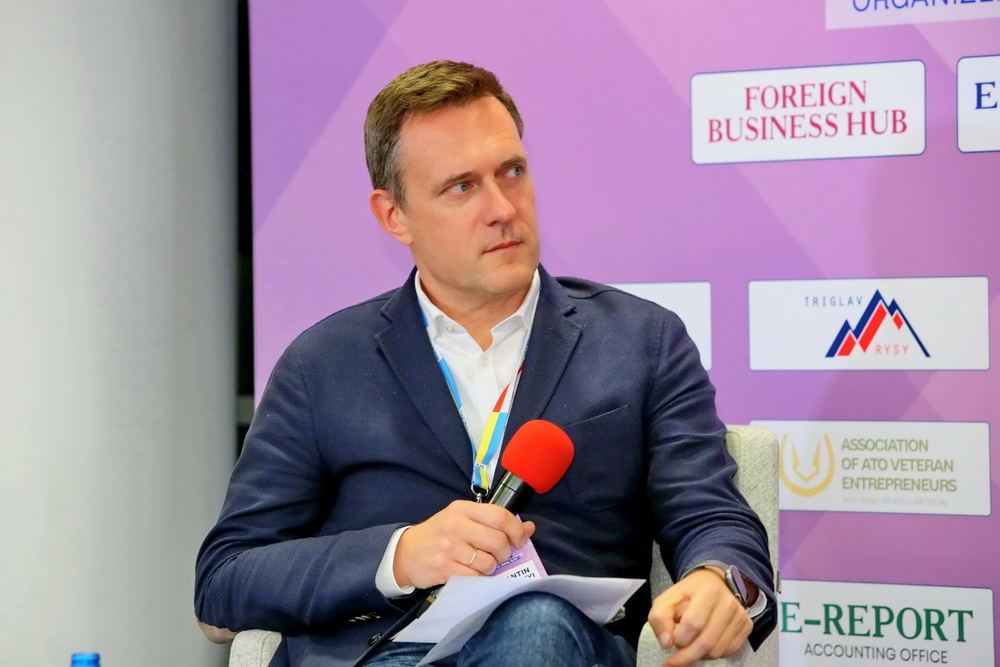
Concluding the panel, moderator Kostantin Magaletskyi highlighted the importance of the projects implemented by Ukrainian and Polish business associations in recent years and stressed the need for continued exchange of practical experience between entrepreneurs of both countries.
He underscored the key role of association-level cooperation in integrating Ukrainian business into the European economic community and developing joint initiatives that stimulate economic growth and investment potential.
The Congress concluded with closing remarks by the Co-Chairs of the Organizing Committee, Yaroslav Romanchuk and Andrii Romanchuk, who expressed sincere gratitude to all participants for their active engagement and meaningful discussions. They also invited everyone to attend the next Congress, which will take place in Kyiv on 28–29 May 2026, promising even more insightful topics, new connections, and promising initiatives for advancing the investment environment.
Click here for the full photo report
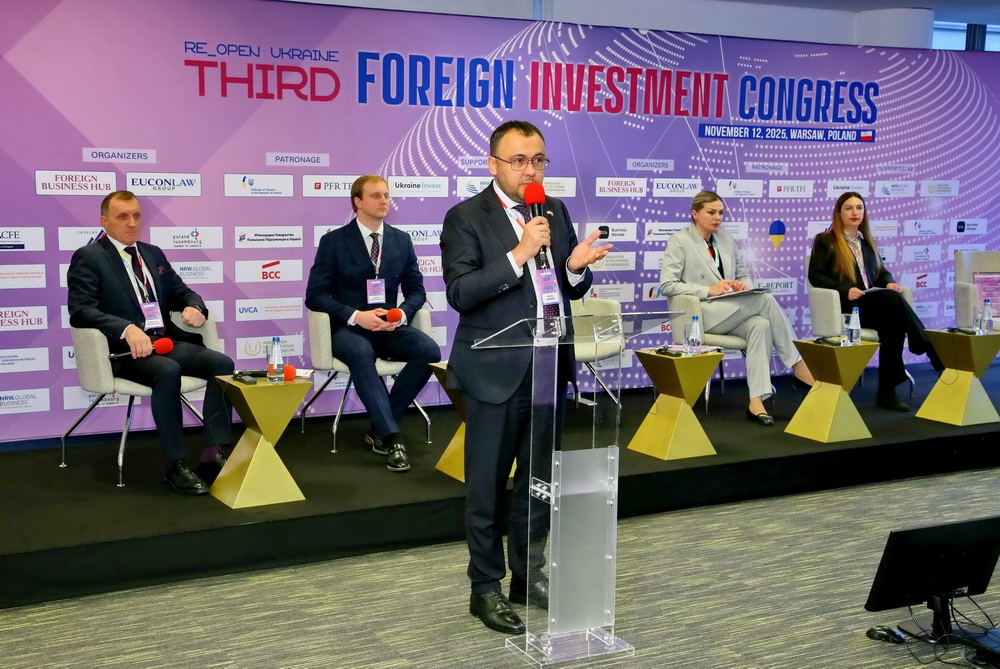
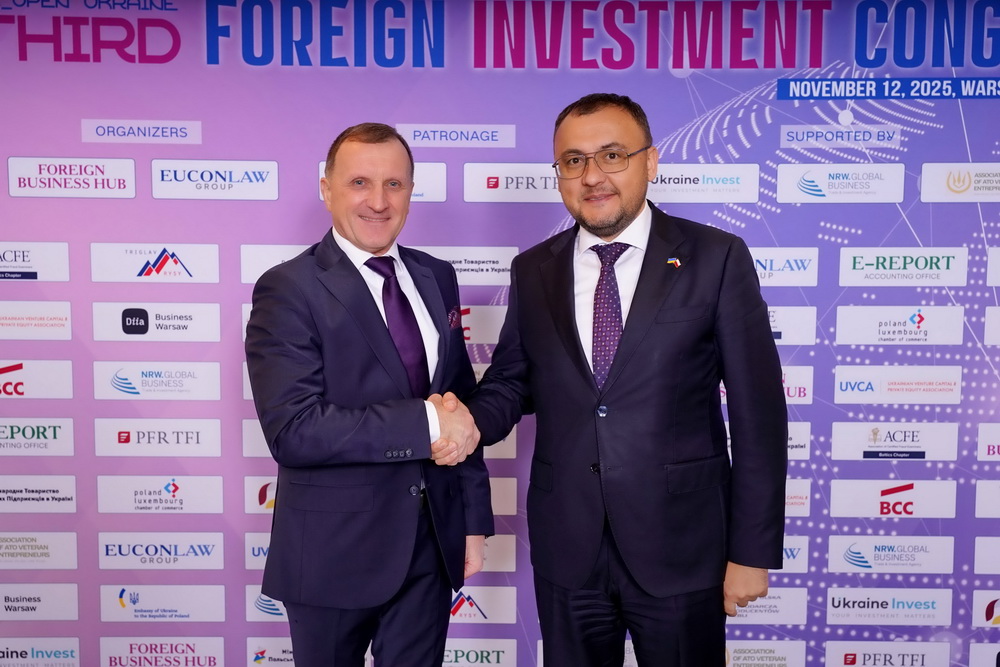

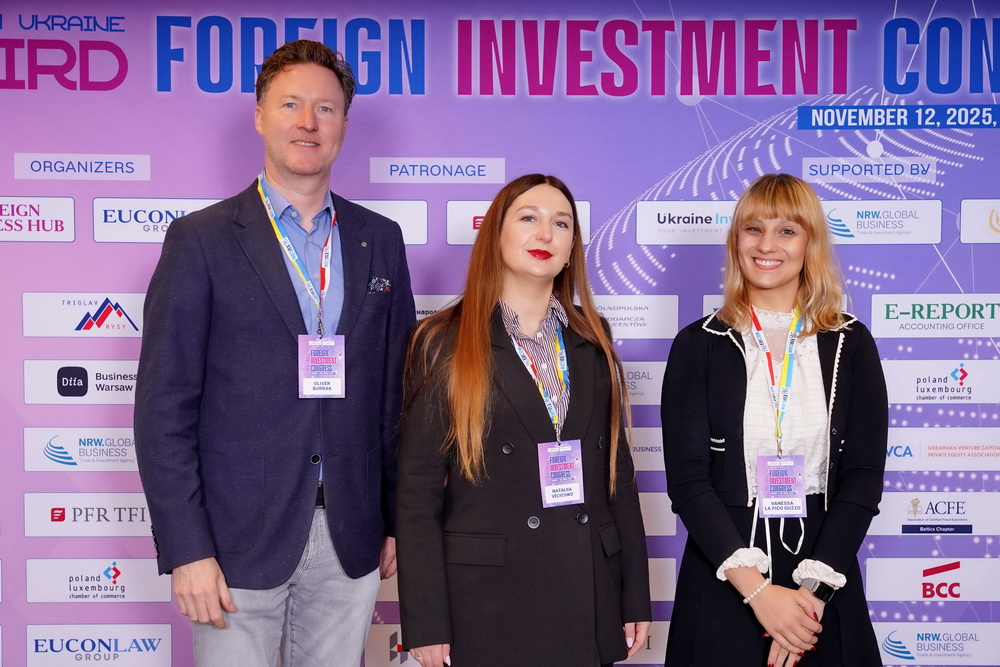

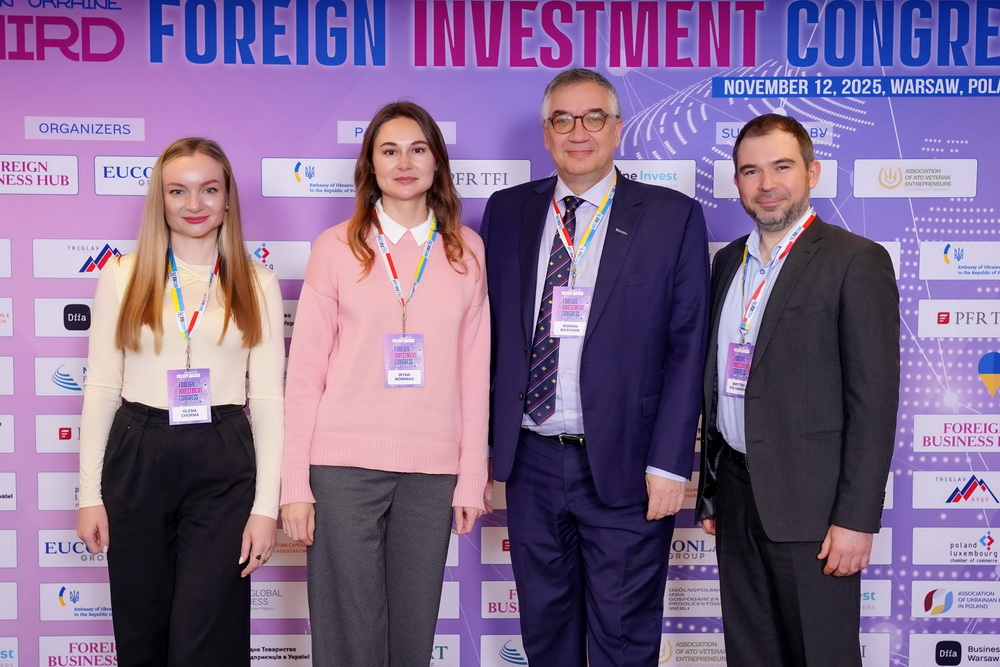
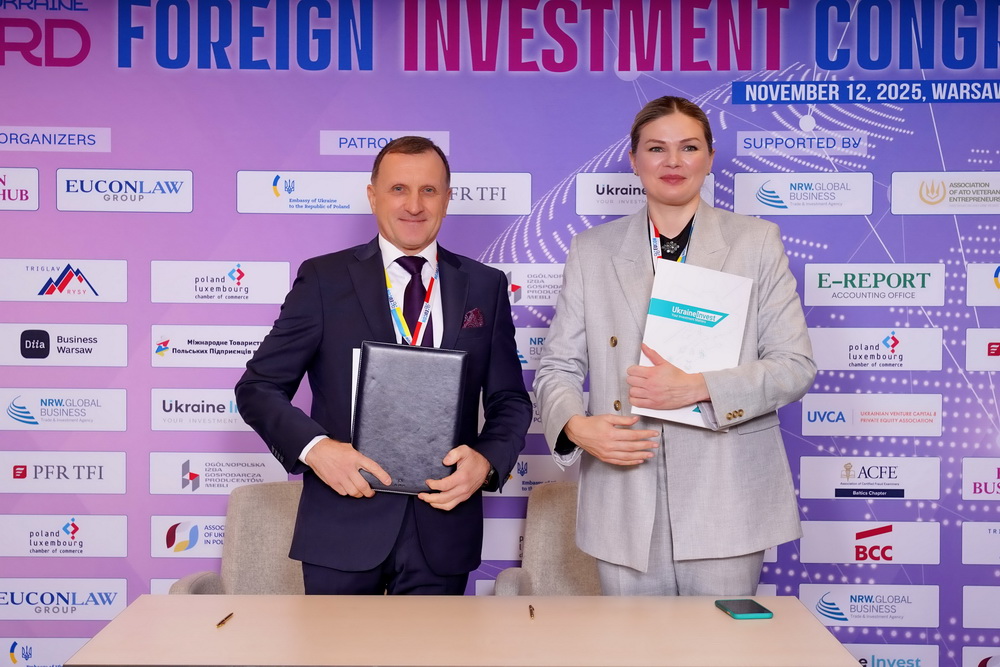

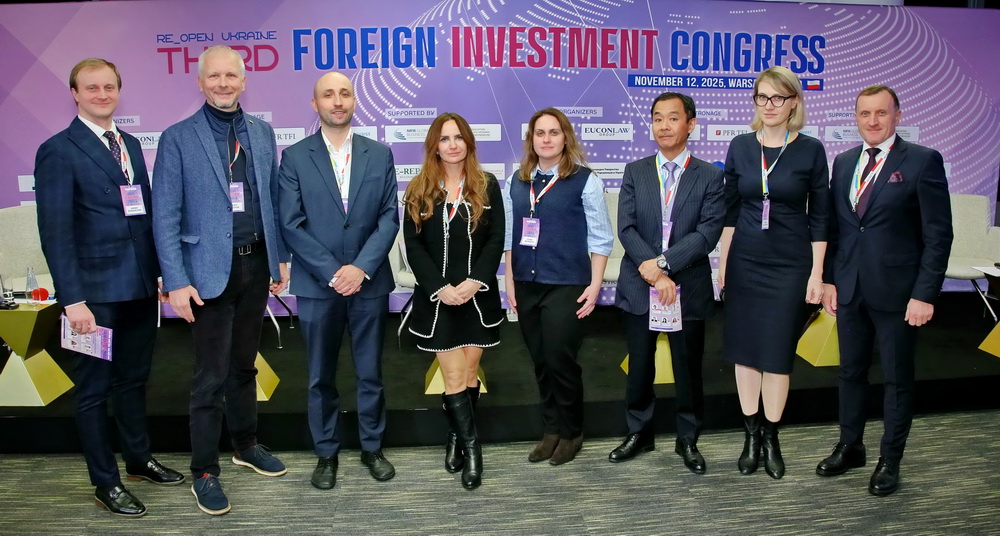
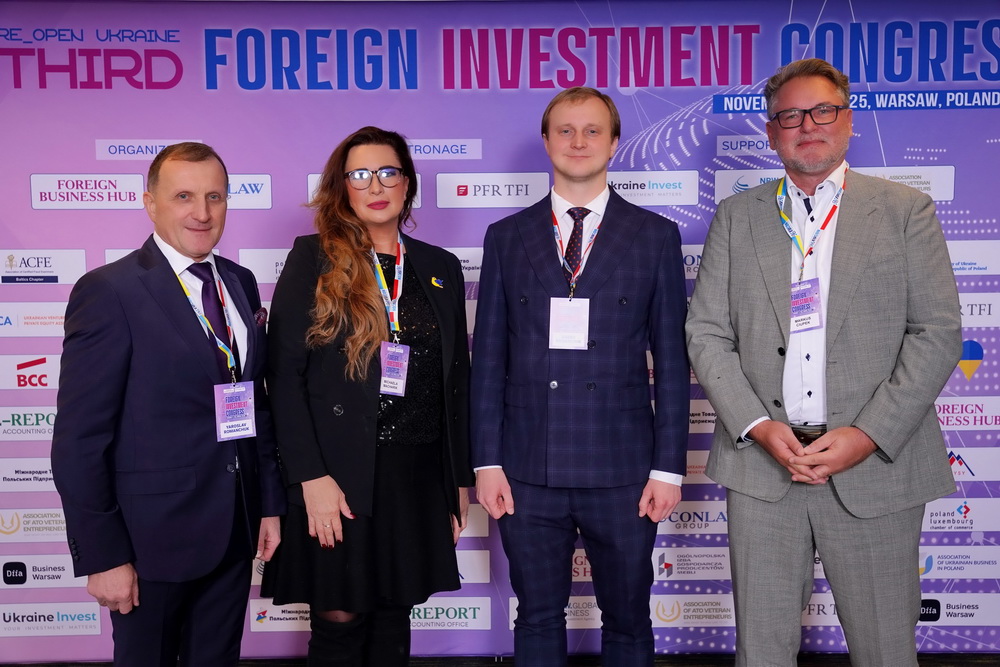

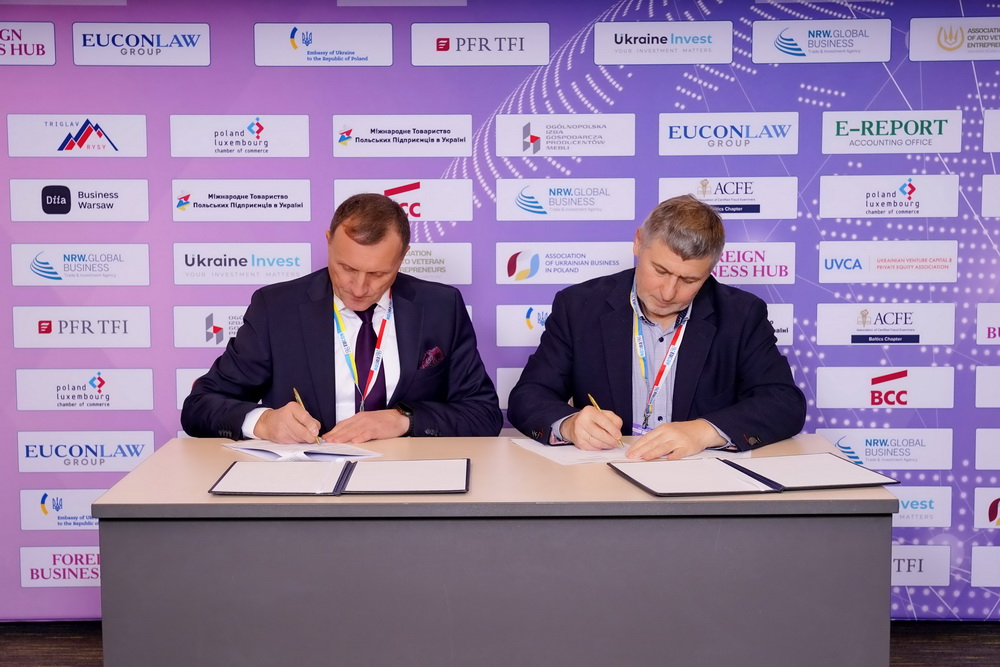

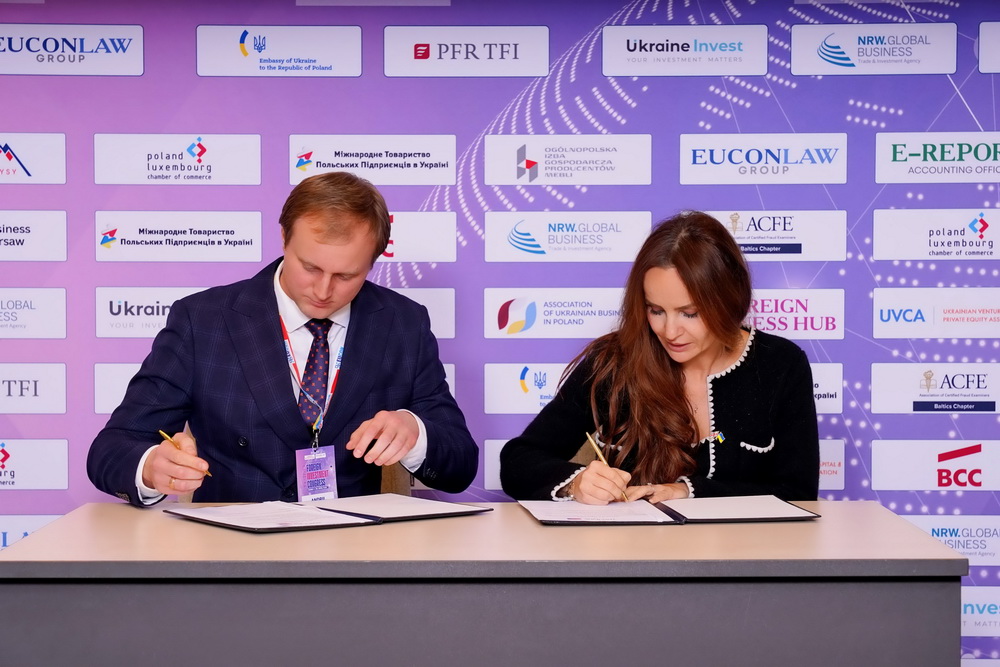
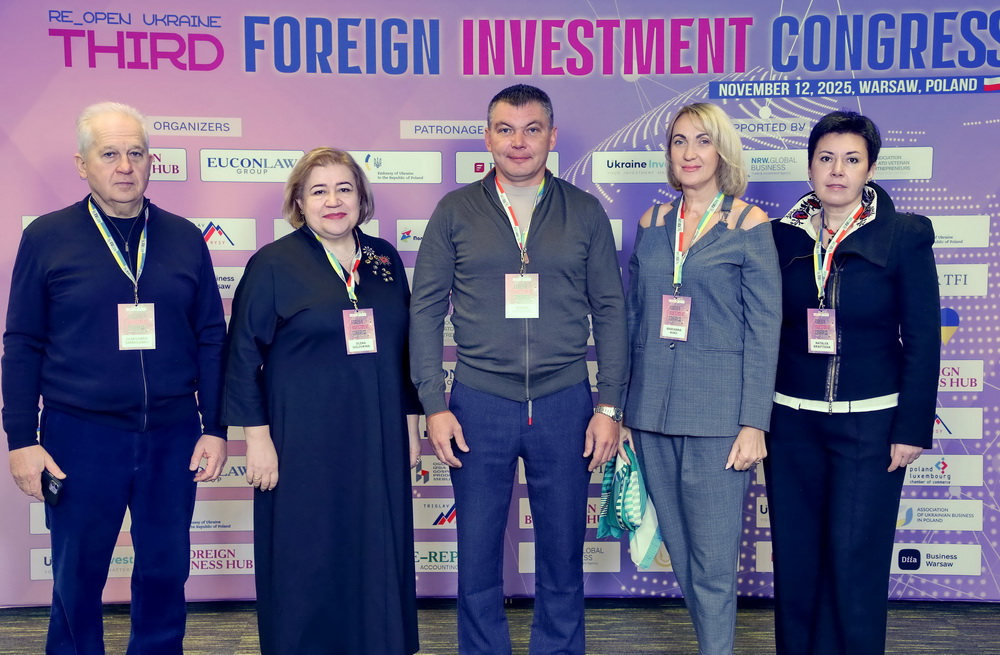
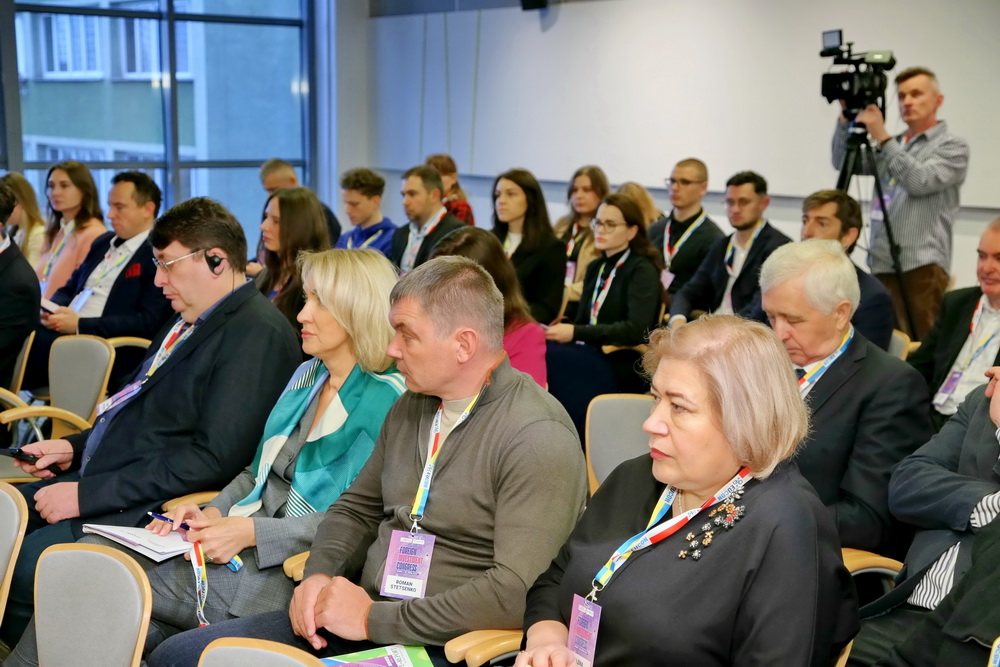
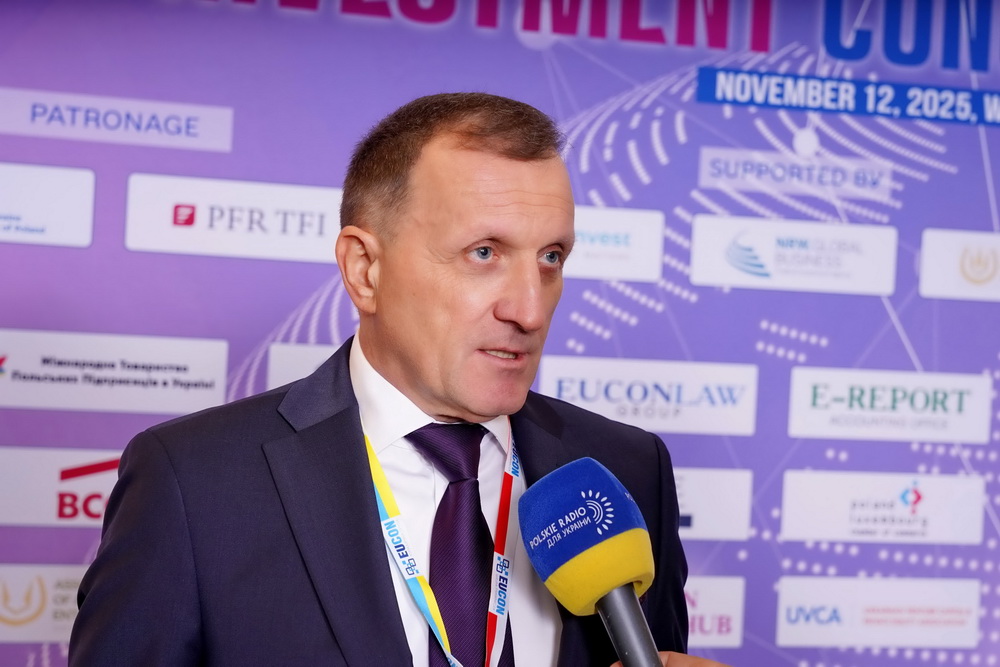
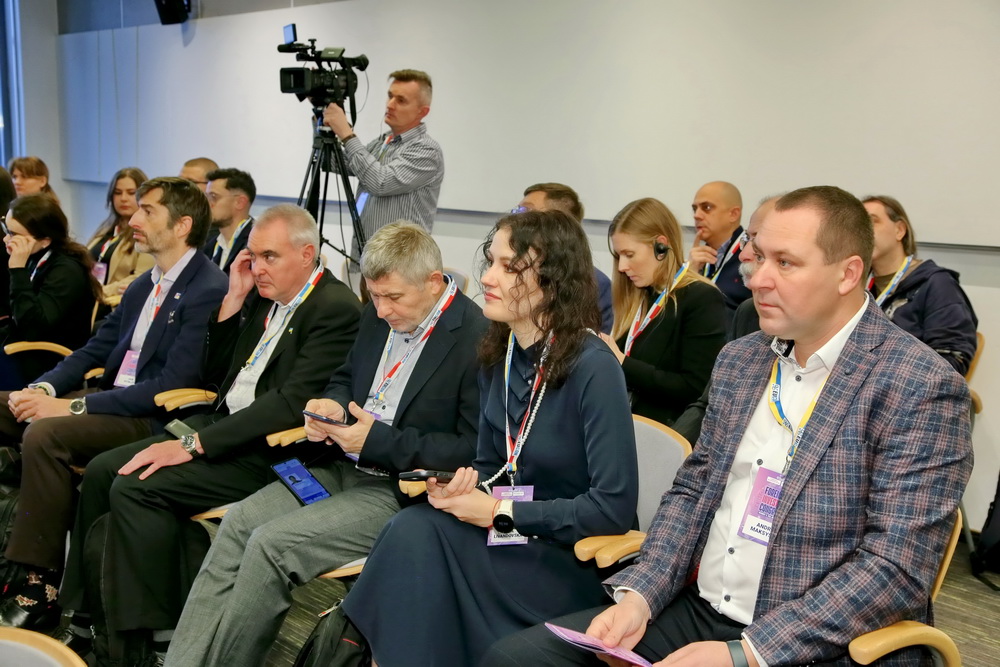
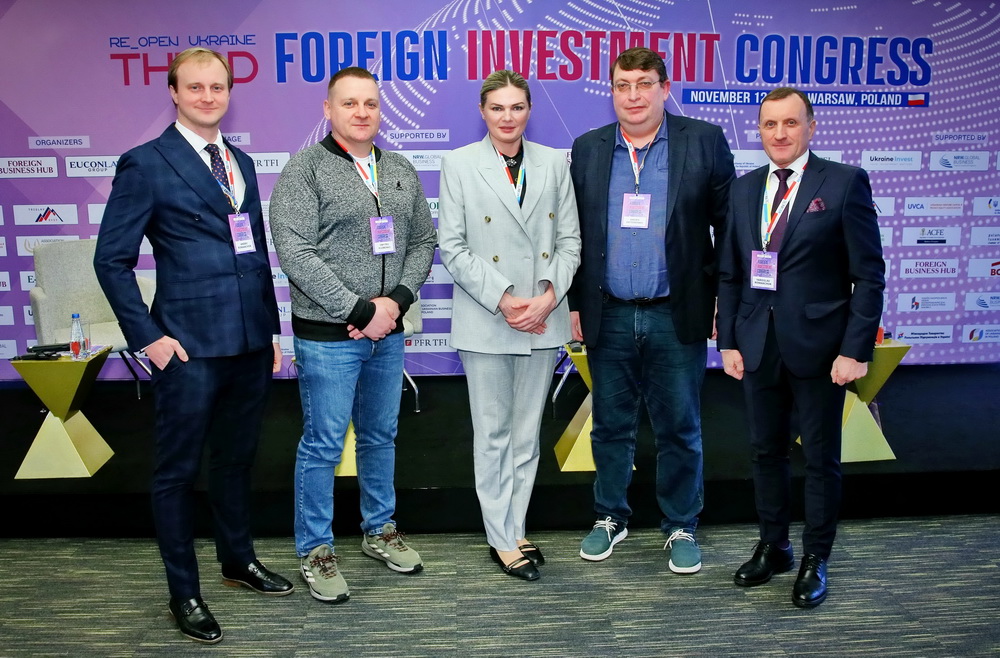
ОРГАНІЗАТОРИ


ПІД ПАТРОНАТОМ
ЗА ПІДТРИМКИ
ІНФОРМАЦІЙНІ ПАРТНЕРИ
